Probate Solicitors
Expert Probate Solicitors to Guide You Through the Estate Process
Key Takeaways
- Grasping the significance of probate and its relevance
- The procedure for obtaining a grant of probate
- Varieties of probate legal professionals
- Fees linked to probate assistance
- Disputed probate issues
- All-encompassing probate support
- Locating the appropriate probate specialist
Understanding Probate and Its Importance
Probate is a crucial legal process that ensures the orderly distribution of a deceased person's estate according to their wishes. This process typically involves obtaining a grant of probate, which is a legal document confirming the authority of executors to manage the deceased's affairs. Probate solicitors play an essential role in navigating the complexities of probate law, guiding families through the necessary steps while ensuring compliance with legal requirements. These professionals, often referred to as probate lawyers, provide invaluable legal services that can help alleviate the burdens associated with managing an estate. Engaging a qualified solicitor can aid in minimising legal fees and avoiding potential disputes, particularly when dealing with powers of attorney or contentious matters. Understanding the importance of this process underscores the need for competent legal representation in probate cases.
What is Probate?
Probate is the legal process that follows an individual's death, primarily concerned with managing their estate. This process ensures that the deceased's wishes, as outlined in their will, are fulfilled. Probate Solicitors play a crucial role in guiding families through this complex procedure, providing legal advice on navigating the various aspects of estate administration. They also help beneficiaries understand important matters such as tax reliefs, which can significantly impact the overall value of the residuary estate.
The role of a lawyer in probate includes applying for a Grant of Probate, which legitimises the will and authorises the executor to distribute the deceased's assets. In situations where a will is absent, a common law partner might face challenges regarding their entitlement. Probate Solicitors also explore options like lasting powers of attorney and legal expenses insurance to assist clients in managing their responsibilities effectively. Resources from the Society of Trust and Estate Practitioners can also provide valuable insights into managing probate matters comprehensively.
- The probate process can take several months to complete, depending on the complexity of the estate.
- Individuals should consider making a will to simplify the probate process for their loved ones.
- Engaging a probate solicitor can help reduce the stress associated with navigating legal requirements.
- Executors have a fiduciary duty to act in the best interest of the estate and its beneficiaries.
- It's important to keep accurate records of all transactions and communications related to the estate.
- Beneficiaries have the right to request updates on the status of the probate process.
- Tax implications can arise during probate, so understanding these can be beneficial for the estate's financial health.
The Role of Probate Solicitors
Probate Solicitors play a crucial role in managing the estate of a deceased person, ensuring that all legal obligations are met according to the law of England and Wales. These professionals guide executors through the complexities of the probate process, offering legal assistance that can mitigate potential court costs. Many law firms employ experienced legal assistants who support the probate team, allowing them to address the nuances of property law and handle any required litigation efficiently. Their expertise is invaluable for navigating the often intricate details involved in the administration of an estate.
Engaging Probate Solicitors can simplify the daunting task of settling an estate. Their knowledge of the necessary fees and documentation ensures that the process is as seamless as possible. Probate Solicitors also advise on matters like lasting power of attorney, which can be crucial in cases involving incapacitated individuals. By leveraging the skills and resources of a reputable law firm, clients can rest assured that their loved ones' affairs are managed competently and in accordance with legal requirements.
The Grant of Probate Process
Obtaining a grant of probate is a crucial step in the estate administration process, ensuring that assets are distributed according to the deceased’s wishes. Probate solicitors play a vital role in navigating this process, assisting executors and beneficiaries alike. This involves a detailed valuation of the estate, which is essential for identifying any applicable fees and understanding the potential expenses associated with the administration of estates. Disputes may arise, particularly when dealing with defendants who contest the will or the estate's distribution. In some cases, matters may escalate to the court of appeal, making it essential for individuals to engage experienced probate solicitors. Engaging a broker can also be beneficial in efficient estate management, ensuring that all aspects of the grant process are handled with care and professionalism.
How to Obtain a Grant of Probate
Obtaining a Grant of Probate is a crucial step for executors tasked with managing a deceased person's estate. Executors must first file an application with the relevant court, where the role of Probate Solicitors can be invaluable. They guide executors through the legal requirements, ensuring that necessary documents are submitted accurately. The application process involves calculating any inheritance tax due, which may include exemptions available for a spouse or civil partner. Accurate property valuation is essential, especially for larger estates, as it can significantly influence the tax payable.
Following the submission of the application, the Probate Registry will review the documentation before issuing the Grant of Probate. This legal document grants the executor the authority to administer the estate. Costs associated with obtaining the Grant can vary widely, depending on factors such as the complexity of the estate and whether professional assistance is sought. Engaging experts like Probate Solicitors can help streamline the process, ensuring all legal obligations are met while minimising potential disputes with beneficiaries or brokers involved in the estate management.
Documents Required for Grant of Probate
Obtaining a Grant of Probate requires specific documentation to ensure the process is smooth and efficient. Essential documents include the deceased's death certificate, the will, and any relevant financial statements detailing assets and liabilities. Engaging experienced probate solicitors can streamline this process, as they are adept at identifying the necessary paperwork and ensuring compliance with probate law. Qualified probate solicitors are well-versed in compiling these documents, ultimately reducing potential delays.
The involvement of expert probate solicitors can be particularly beneficial when complexities arise in the documentation. Specific probate solicitors may focus on contentious probate cases, where disputes over the will or estate occur. Understanding the probate solicitor charges linked to these services is crucial for clients. Their charges can vary significantly based on the complexity of the case and the expertise required. Therefore, clients should be aware of both the necessary documents and the associated costs when seeking professional assistance.
| Document | Description | Importance |
|---|---|---|
| Death Certificate | Official confirmation of the deceased's passing | Essential for initiating the probate process |
| Last Will and Testament | The legal document outlining the deceased's wishes regarding their assets | Crucial for determining the distribution of the estate |
| Financial Statements | Documents detailing the deceased's assets, liabilities, and financial accounts | Necessary for assessing the estate’s value and settling debts |
| Identity Proof | Documents like passport or driver's license of the executor | Required to establish the identity of the person applying for probate |
| Inheritance Tax Forms | Documents related to the assessment of potential inheritance tax | Required for compliance with tax regulations |
Types of Probate Solicitors
Probate solicitors play a crucial role in navigating the complexities of probate matters. They can be broadly categorised into general probate solicitors and specialist probate solicitors. General probate solicitors typically handle a wide range of probate works, assisting clients with standard procedures and documentation required by the probate registry. On the other hand, specialist probate solicitors focus on specific areas of probate claims, offering expertise in contentious probate cases and complex estates. Knowledgeable probate solicitors possess a deep understanding of legal nuances and provide tailored probate services to meet individual client needs. For those located in Solihull, engaging local probate specialist lawyers can enhance the likelihood of successful outcomes in their probate matters.
| Type of Probate Solicitor | Expertise | Typical Clients | Common Services Offered |
|---|---|---|---|
| General Probate Solicitor | Handles standard probate matters | Individuals and families | Filing probate applications, estate administration |
| Specialist Probate Solicitor | Focuses on contentious probate and complex estates | Clients with disputes or complex asset portfolios | Litigation services, estate planning, tax advice |
| Local Probate Specialist | Knowledge of regional laws and practices | Local clients in need of personalized service | Tailored legal advice, representation in local courts |
General Probate Solicitors
Probate solicitors play a crucial role in handling probate matters for individuals and families. They provide comprehensive probate services that guide clients through the intricacies of the probate application process. These experts assist with the administration of estates, ensuring that all relevant legal obligations are met. Probate solicitors are well-versed in probate litigation, making them invaluable when disputes arise. Their knowledge helps clients avoid common pitfalls associated with probate work.
Many individuals seeking assistance are often concerned about probate fees. A probate consultant can clarify these costs, outlining how they relate to the overall estate management process. Probate brokers may also be involved, offering their expertise in navigating complex cases. Engaging with experienced probate experts can significantly simplify the process, whether it's managing paperwork or resolving conflicts. Ultimately, a skilled probate solicitor can ensure the efficient handling of all probate matters.
Specialist Probate Solicitors
Probate Solicitors who specialise in contentious matters play a crucial role in handling complex probate cases. With a focus on probate disputes, these experienced solicitors guide clients through the intricacies of probate administration. Knowledgeable in the legal framework surrounding probate mandates, they work diligently to ensure that all matters related to the probate process are managed efficiently. Their expertise is particularly valuable in navigating the challenges posed by probate registry fees and other financial considerations that may arise.
The skills of specialist Probate Solicitors are essential for clients facing litigation related to wills and estates. Their background in experienced probate litigation equips them to handle various issues that may lead to disputes among beneficiaries or family members. These solicitors are adept at finding resolutions while ensuring that their clients' rights are protected. Given the sensitive nature of contentious probate, selecting such an expert can significantly impact the outcome of a case, making their role indispensable in the probate landscape.
Charges Associated with Probate Services
Understanding the charges associated with probate services is crucial for anyone navigating the complexities of estate administration. Probate solicitors typically offer various services that range from handling straightforward probate cases to managing contentious probate matters. The fees charged by these probate specialists can vary significantly depending on the nature of the work involved. For straightforward probate cases, many solicitors may provide a fixed fee, while more complex situations, such as contentious probate claims or probate-related disputes, may require hourly billing. Different probate processes could necessitate additional expertise, impacting overall costs. Seeking an efficient probate service can aid in minimising expenses while ensuring that all aspects of the estate are handled appropriately.
Understanding Probate Solicitors Charges
Probate solicitors typically charge fees for their services based on the complexity of the probate process. A straightforward probate process may involve a fixed fee, while more complex probate matters can lead to variable charges. Few solicitors opt for hourly rates in these cases, which can result in higher costs for clients, especially in contested probate cases. Understanding the structure of these charges is essential, particularly when filling out the probate application form.
Understanding the costs involved can be crucial, especially if contentious probate issues arise. A contentious probate specialist will often have higher charges due to the intricacies involved in handling contested probate. Solicitor charges can vary significantly based on the nature of the case, the jurisdiction, and the experience of the probate solicitors. Clients should seek transparency regarding fees to avoid unexpected expenses during the probate process.
Factors Influencing Probate Costs
Probate costs can vary significantly based on the complexity of the estate being handled and the nature of the services required. Leading solicitors may charge differently, with specialist solicitors often commanding higher fees due to their expertise in managing contentious probate disputes. The involvement of expert solicitors can expedite the probate timeline, while traditional solicitors might follow a more conventional approach. Obtaining a fee probate quotation early in the process is essential for understanding potential costs associated with your specific probate case.
The size and value of the estate play a critical role in determining costs. A simple estate may incur lower fees, while a trained probate case with multiple assets or beneficiaries will likely require a more comprehensive approach from the probate team. Factors such as the need for probate mediation to resolve disputes can also influence expenses. Thus, selecting the right probate solicitors is crucial in managing and mitigating potential costs effectively.
- The complexity of the estate's assets and liabilities
- The number of beneficiaries involved
- The necessity for valuations of property or investments
- The geographical location of the estate
- Any disputes that may arise during the probate process
- The experience and reputation of the solicitors engaged
- Additional services required, such as tax advice or estate planning
Contentious Probate Matters
Contentious probate matters often arise when disputes occur regarding the validity of wills or the distribution of an estate. Probate solicitors play a crucial role in navigating these complex situations, offering expert legal advice to resolve conflicts efficiently. Willsandprobate issues can involve various stakeholders, making it essential to engage with knowledgeable estate practitioners who understand the intricacies of the law. Firms like Duncan Lewis Solicitors and Stephensons Solicitors provide specialised services tailored to contentious claims, ensuring clients receive effective representation. The potential for high legal costs necessitates careful consideration when selecting an expert trust solicitor, as their experience can significantly influence the outcome of disputes. Understanding the scope of services and potential expenses in this edition is vital for anyone facing contentious probate issues.
What Are Contentious Probate Solicitors?
Contentious probate solicitors specialise in resolving disputes that arise during the probate process. These legal experts provide essential legal guidance for individuals facing challenges in administering estates. Their role often involves representing parties in legal proceedings related to contested wills or challenges to the validity of the estate. Individuals may employ lawyers from the private client section to navigate complex legal matters, ensuring that their legal needs are adequately met and that they receive appropriate legal support.
The expertise of contentious probate solicitors is particularly vital in cases where disagreements among beneficiaries or disputes regarding executor expenses occur. These lawyers possess a deep understanding of probate law and can effectively advocate for their clients in adversarial situations. Engaging with such legal professionals allows clients to address their concerns efficiently and helps maintain a smoother probate process amidst potential conflicts. Their involvement can often lead to resolutions that safeguard the interests of all parties involved.
Common Disputes in Probate Cases
Disputes in probate cases often arise regarding the validity of a will or the distribution of an estate among beneficiaries. Legal professionals, including Probate Solicitors, play a crucial role in navigating these complexities, as misunderstandings can lead to significant legal ramifications. Cases may involve challenging the legitimacy of documents or accusations of undue influence. Engaging with legal directories can help individuals find experienced Probate Solicitors who are adept at handling such disputes. Associate solicitor Samantha emphasises the importance of comprehensive estate accounts in reducing potential conflicts during estate administration.
Another common area of contention involves the clarity of estate affairs and the associated financial responsibilities. Beneficiaries may contest estate administration fees or question the management of available tax reliefs that could benefit the estate. Legal professionals are essential in addressing these disputes, especially when litigation insurance is required to protect against unexpected costs. Ensuring that all parties are informed and that proper documentation is maintained can help mitigate disputes and promote smoother estate resolution.
Comprehensive Probate Services
Probate services encompass a range of crucial tasks handled by Probate Solicitors to ensure the smooth execution of legal processes following a person's death. Experienced legal specialists assist with estate valuation and the preparation of estate accounts, ensuring compliance with legal duties required for proper estate distribution. Firms like Ison Harrison Solicitors provide comprehensive support, helping families navigate the intricacies of the registry while managing estate funds effectively. They may also liaise with litigation loan companies if disputes arise, ensuring that the interests of all parties are adequately represented throughout the probate process.
Overview of Probate Services Offered
Probate solicitors play a crucial role in guiding clients through the complexities of estate administration. A Yorkshire law firm can provide a range of estate administration services tailored to individual needs. These top law firms offer legal expertise to help navigate various legal issues arising during the probate process. Their understanding of the legal meaning of probate ensures that all estate administration affairs are handled efficiently and with care.
Estate administration often involves a multitude of tasks, from applying for the grant of probate to distributing assets according to the will or intestacy laws. Property valuations, tax implications, and debt settlements are just a few responsibilities handled by probate solicitors. Having a knowledgeable partner, such as Suzanna Baker, can significantly ease the burden associated with managing estates. Engaging with specialized legal teams ensures that all aspects of estate administration are addressed proficiently and with the utmost professionalism.
Choosing a Probate Services Provider
Selecting the right probate services provider is crucial for navigating the complexities of managing an estate. Probate solicitors play a significant role in preparing legal documents essential for the distribution of assets. This often includes creating detailed estate accounts and collecting estate funds. Clients must ensure that the chosen provider is transparent about any disbursements and potential extra fees associated with the service. Understanding these elements can aid in avoiding unexpected costs during what is already a sensitive time for families, especially spouses who may be dealing with a loss.
Clients should also consider the provider's expertise in inheritance tax planning. Effective tax planners can significantly impact the overall value of the estate and ensure compliance with current tax regulations. Choosing probate solicitors who can efficiently handle the intricacies of the estate can help alleviate stress for clients. Having a knowledgeable solicitor can make a notable difference in both the administration process and the final outcome of the estate distribution.
Finding the Right Probate Expert
Choosing the right Probate Solicitor is essential for navigating the complex legal process surrounding the administration of an estate. Practitioners in the private client field must have a deep understanding of relevant law, particularly when managing whole estates with significant estate value. Skilled Probate Solicitors can assist in resolving estate disputes and preparing final estate accounts, ensuring compliance with all legal requirements. Whether relying on the expertise of an experienced practitioner or seeking the assistance of a specialist like Estatesjenny Walsh partner, it is crucial to find a solicitor with a proven track record who can handle the specific needs of your estate efficiently and effectively.
Qualities of a Good Probate Solicitor
A good probate solicitor should possess a comprehensive understanding of estate law and the intricate processes involved in managing estates. This professional executor must be adept at navigating complex estate matters, ensuring that clients receive appropriate reliefs and reasonable inheritance provisions. Knowledge of exemptions and the specific requirements set forth by the law society is crucial. A probate solicitor with this expertise can reassure clients that their interests will be competently represented, especially in cases where court action may be necessary.
Strong communication skills are equally essential for a probate solicitor. They must be able to explain complicated legal jargon in a manner that clients can easily understand. Transparency regarding their own disbursements and fees helps to build trust. Whether managing disputes over estates or guiding clients through smooth probate proceedings, the solicitor's ability to listen and respond effectively to clients’ needs is vital for successful outcomes. A reputable firm, such as EstatesLesley Boreham Associate, exemplifies these qualities by putting client satisfaction at the forefront of their services.
Questions to Ask a Probate Specialist
Selecting the right probate solicitor is crucial for navigating the complexities of estate management. It's essential to inquire about their experience in handling contentious probate disputes. Many leading solicitors may have expertise in traditional practices, but opting for specialist solicitors with a proven track record in probate mediation can significantly ease the resolution process. Understanding their approach to your specific probate case, including the typical probate timeline, helps set clear expectations.
Asking for a fee probate quotation upfront is advisable. Transparency regarding costs can prevent misunderstandings later on. Engaging with a probate team that comprises expert solicitors can provide peace of mind. It's important to determine how the team collaborates and the level of support offered throughout the process. A well-structured approach, including effective communication, is vital for a seamless experience.
Conclusion
The journey through the probate process can be complex and daunting, often requiring the expertise of skilled Probate Solicitors to navigate various challenges. Engaging with probate experts ensures that all probate work is handled efficiently, from the initial probate application to any necessary probate litigation that may arise. Comprehensive probate services provided by these specialists can streamline the process, making it less overwhelming for families during emotionally taxing times. Understanding the probate fees associated with these services is crucial, as they can vary depending on the complexity of the estate and the involvement of probate consultants or brokers. By asking the right questions and choosing the right probate service provider, individuals can ensure they receive the support they need, ultimately easing the burden of managing an estate.
FAQS
How can probate experts assist you throughout the probate process?
Probate experts, such as probate solicitors, can help you navigate the complexities of the probate process, ensuring that your legal needs are met. Many probate law solicitors in Solihull are experienced and understand that the probate process refers to the legal procedure of administering estates. They can handle probate efficiently and address any contentious probate encompasses issues that arise. Whether you need assistance from expert trust solicitors or are looking for insight into how much probate solicitors charge, their expertise is essential in ensuring a smooth process.
What should I consider when choosing a probate solicitor for the probate process?
When choosing a probate solicitor for the probate process, you should consider their experience and expertise in managing estates, such as those offered by Solihull probate solicitors. It's important to find a probate solicitor that meets your needs, like Duncan Lewis probate specialists, who can navigate the legal system efficiently. Additionally, reading legal guides and editions from sources like Lawyersview can help you understand what qualities to look for in a probate solicitor, such as their ability to manage your estate effectively, like those handled by Susanna Baker, a partner in the field.
What are the key responsibilities of a probate solicitor during the probate process?
A probate solicitor needs to handle various tasks during the probate process, including estate administration, distribution of assets, and ensuring all legal requirements are met. Their expertise helps navigate complexities, providing peace of mind to the executor or beneficiaries involved. Edition.âDuncan Lewis Solicitors and estatesSuzanna Baker, partner, can further illustrate this with practical insights.
How do probate solicitors handle complexities during the probate process?
Probate solicitors play a crucial role in navigating the complexities of the probate process, especially when it comes to managing estates. For instance, estates with multiple beneficiaries or assets may require specialised knowledge and experience, which is where professionals like Suzanna Baker, a partner with expertise in estates, can provide invaluable assistance in ensuring a smooth probate process.
What tips can you follow to navigate the probate process when dealing with estates?
To effectively navigate the probate process related to estates, it is advisable to consult with professionals like Susanna Baker, a partner who can provide expert guidance through the intricate details of managing estates.
How do probate solicitors support clients in understanding the probate process involving estates?
Probate solicitors provide crucial guidance to clients, ensuring they navigate the probate process smoothly, especially when dealing with estates. For example, they can help clarify the responsibilities and legal requirements involved. At firms like Suzanna Baker & Partner, experienced probate solicitors offer tailored advice and support throughout the entire probate process.
How do probate solicitors play a role in making the probate process smoother for estates?
Probate solicitors are vital in ensuring that the probate process is handled efficiently and smoothly for estates. They provide expert guidance and support, which includes assisting with the necessary paperwork, navigating legal requirements, and addressing any issues that may arise during the process. This expertise is essential for clients like Suzanna Baker, a partner in a firm who understands the intricacies of managing estates in probate scenarios.
How do probate solicitors ensure that the probate process is efficient when dealing with estates?
Probate solicitors play a crucial role in ensuring the probate process is efficient by providing expert guidance and managing all necessary legal requirements related to estates. Suzanna Baker, a partner noted for her expertise, emphasizes that probate solicitors help streamline communication, resolve disputes, and handle the complexity of legal documentation involved in the probate process.
What are the common challenges clients face in the probate process and how can a probate solicitor help them navigate these challenges?
Clients often encounter various hurdles in the probate process, such as emotional stress and legal complexities surrounding estates. A probate solicitor can offer invaluable assistance by providing expert guidance and support, ensuring that the process runs smoothly. Specific to cases involving estates, solicitors like Suzanna Baker, a partner in her firm, can clarify legal obligations and help clients understand their rights, leading to a more efficient probate process.
What are the common pitfalls in the probate process that clients should be aware of?
Clients navigating the probate process may encounter common pitfalls such as delays, mismanagement of estate assets, and complexities related to tax obligations. By seeking advice from professionals like Suzanna Baker, a partner with experience in this area, clients can gain insights into managing their estates effectively while ensuring a smoother probate process.

Roundup of Best Practices for Choosing a Probate Solicitor
Setting up initial consultations with prospective probate solicitors is a crucial step in the selection process. Begin by compiling a list of potential candidates based on reviews, qualifications, and areas of expertise. Reach out to each solicitor t...
Read more →
Review of Top Probate Solicitors in the UK
Probate solicitors provide a range of services designed to assist clients through the complexities of estate administration. They guide clients in applying for probate, ensuring that all legal paperwork is accurately completed and submitted. These pr...
Read more →
The Historical Role of Probate Solicitors in Law
The 19th century marked a significant period for probate solicitors as they navigated the complexities of a rapidly changing legal landscape. With the rise of the industrial revolution, England saw an influx of wealth, leading to an increased need fo...
Read more →
10 Essential Questions to Ask Your Probate Solicitor
When selecting a probate solicitor, understanding their approach to conflicts of interest is vital. Solicitors must adhere to ethical guidelines that prioritise the interests of their clients. It is essential for prospective clients to inquire about ...
Read more →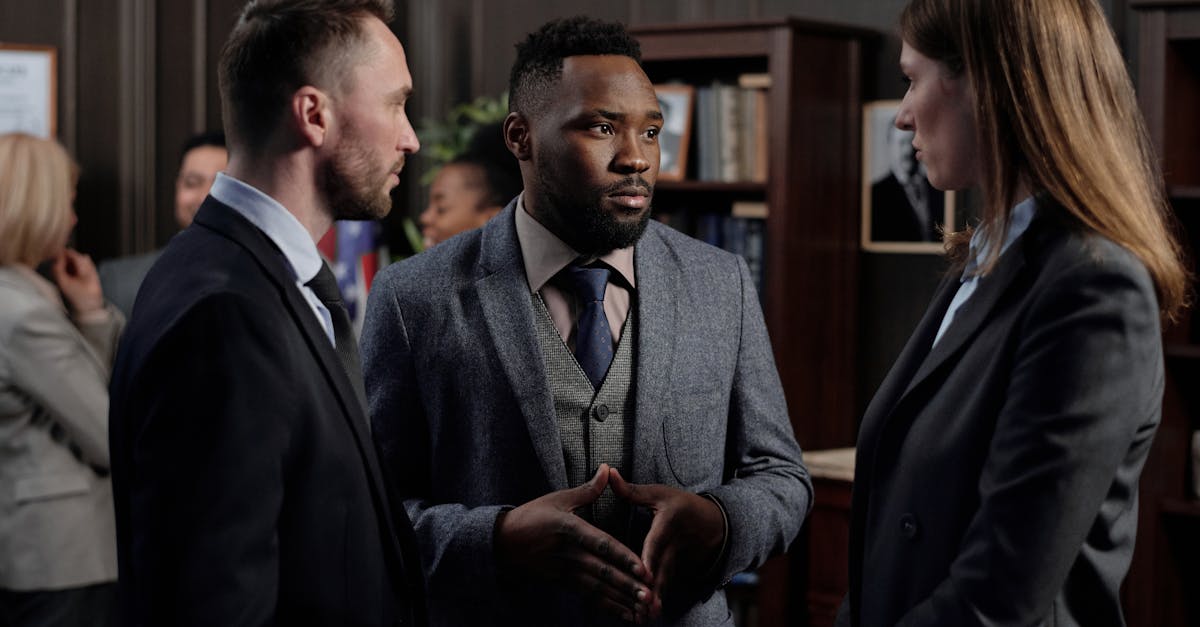
Why You Should Hire a Specialist Probate Solicitor
Hiring a specialist probate solicitor ensures that you receive legal advice customised specifically for your unique circumstances. Each estate is distinct, involving various assets, debts, and personal dynamics among beneficiaries. Navigating the pro...
Read more →
Why Local Knowledge Matters in Probate Cases
Accurate property and asset valuation is a crucial element of probate cases. The value of real estate, personal belongings, and investments significantly impacts the distribution of the deceased's estate. Local expertise is essential for appraising t...
Read more →
What to Consider When Hiring a Probate Solicitor
Effective communication is essential in the realm of probate law. A proficient solicitor should exhibit the ability to explain complex legal terms and processes in an understandable manner. This clarity fosters trust and ensures clients grasp the nua...
Read more →
What to Expect from a Probate Solicitor
Effective communication is vital when working with a probate solicitor. Clients often find themselves in emotionally charged situations, making clear and consistent updates indispensable. A good solicitor will proactively reach out to keep clients in...
Read more →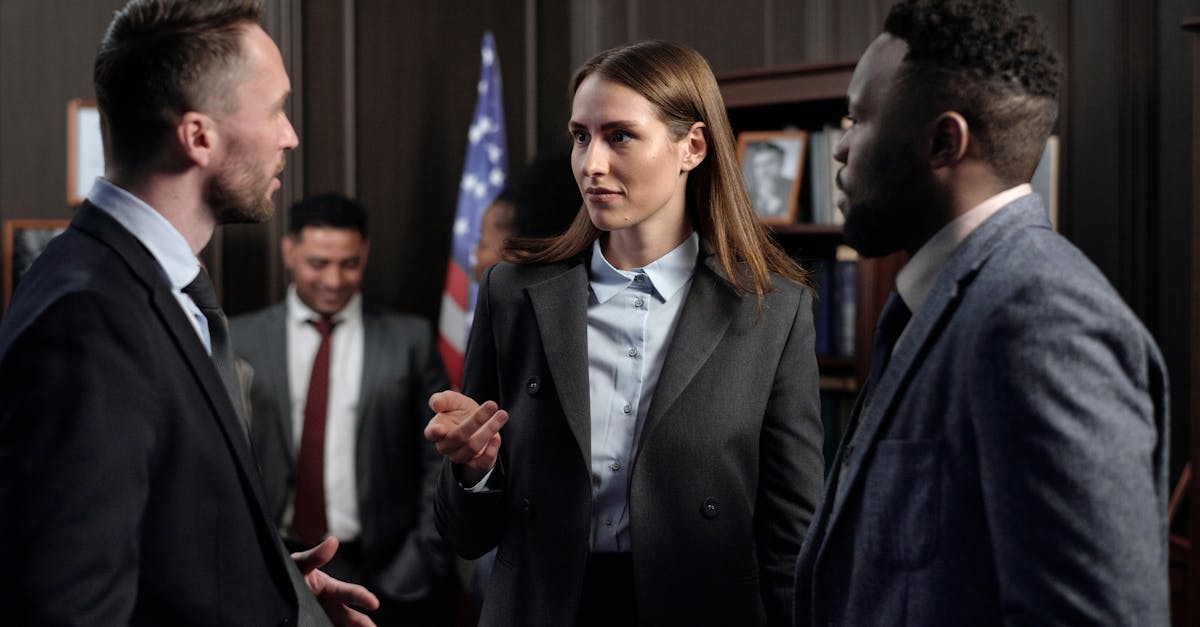
How to Evaluate the Services of a Probate Solicitor
When evaluating probate solicitors, it is important to consider the different costs associated with their services. These costs can vary significantly based on the solicitor’s experience, the complexity of the probate case, and the type of fee stru...
Read more →
How to Choose the Right Probate Solicitor
When looking for a probate solicitor, the first step involves gathering a list of potential candidates. Personal recommendations from friends, family, or colleagues can be invaluable. Professional networks and local bar associations also provide dire...
Read more →
Roundup of Best Practices for Selecting a Probate Solicitor
When selecting a probate solicitor, understanding their fee structures is crucial for making an informed decision. Many solicitors offer various options, including hourly rates, fixed fees, and success fees. Each structure comes with its own set of i...
Read more →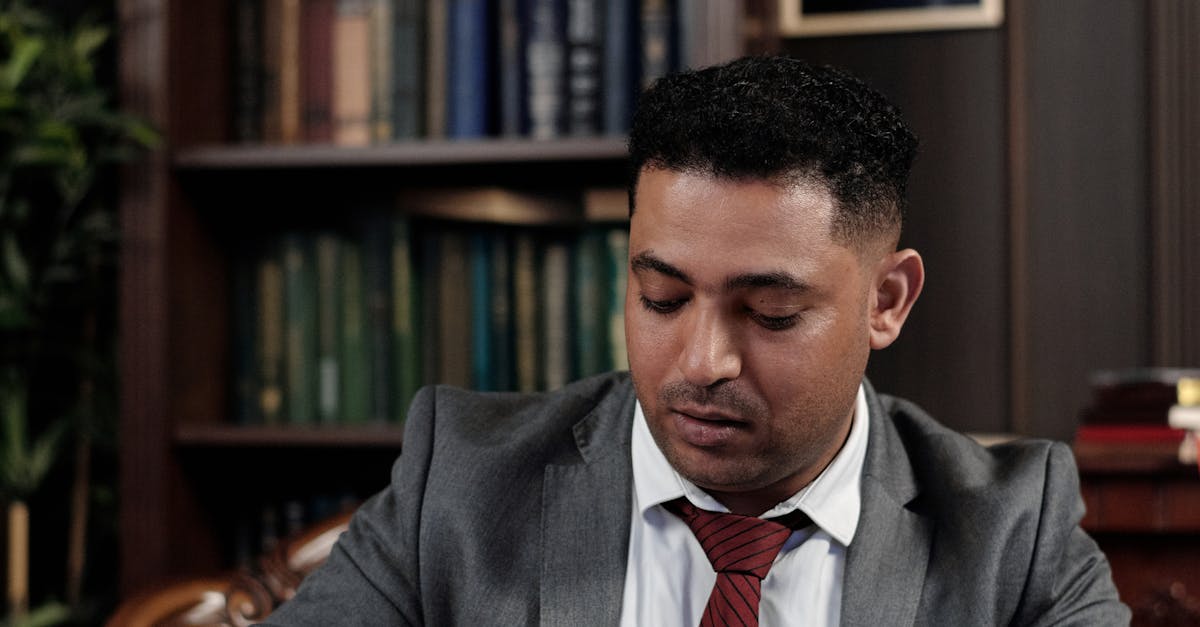
Review of Top Probate Solicitors in the UK
The pricing structure of probate services can vary significantly between different solicitors. Many firms offer a range of pricing models, including fixed fees or percentages of the estate's value. A fixed fee may provide clarity upfront, while perce...
Read more →
10 Essential Questions to Ask Your Probate Solicitor
When meeting with your probate solicitor, having the right documents readily available will streamline the process and ensure you receive accurate advice. Essential paperwork typically includes the deceased’s will, any prior codicils, and documents...
Read more →
The Historical Role of Probate Solicitors in Estate Management
Probate solicitors play a crucial role in assisting executors with the management of a deceased person's estate. Executors bear the responsibility of ensuring that the wishes outlined in a will are fulfilled. This often involves navigating complex le...
Read more →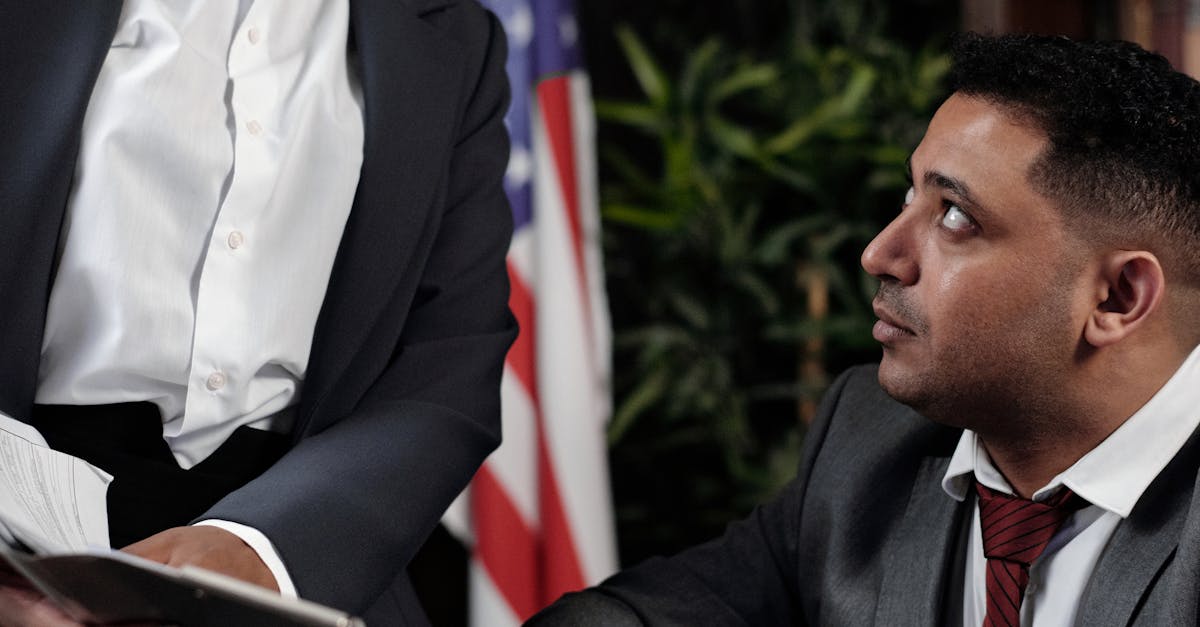
Why You Should Ask the Right Questions to Your Probate Solicitor
Navigating the probate process can unveil a range of potential challenges. Delays often arise due to disputes among beneficiaries, complex asset evaluations, or unforeseen tax implications. Each of these issues can prolong the administration of an es...
Read more →
Why Local Knowledge Matters When Choosing a Probate Solicitor
Effective communication is crucial when dealing with sensitive matters such as probate. A solicitor familiar with local customs and norms can navigate conversations with a nuanced understanding of the client's context. This familiarity often fosters ...
Read more →
What to Expect from Your Probate Solicitor
Many individuals hold the belief that probate solicitors solely focus on the value of the estate and its distribution. In reality, their role extends far beyond these tasks. Probate solicitors guide clients through the complexities of estate administ...
Read more →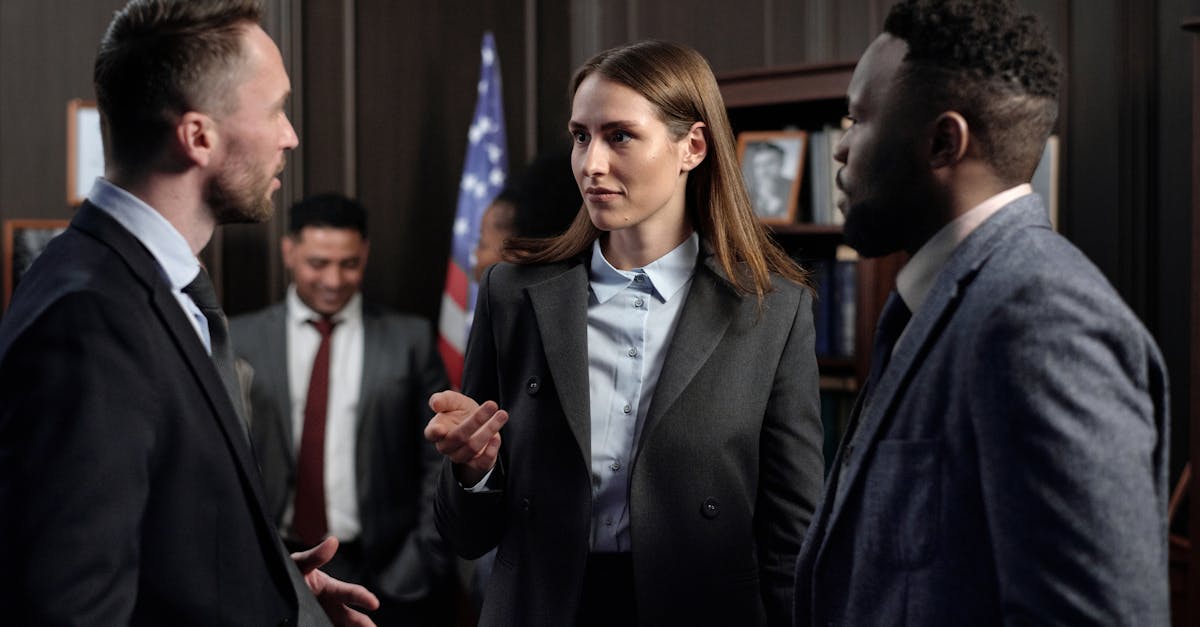
What to Consider When Choosing a Probate Solicitor
When selecting a probate solicitor, personal recommendations can provide invaluable insights. Friends, family, or colleagues who have previously navigated the probate process may share their experiences and suggest solicitors who offered effective as...
Read more →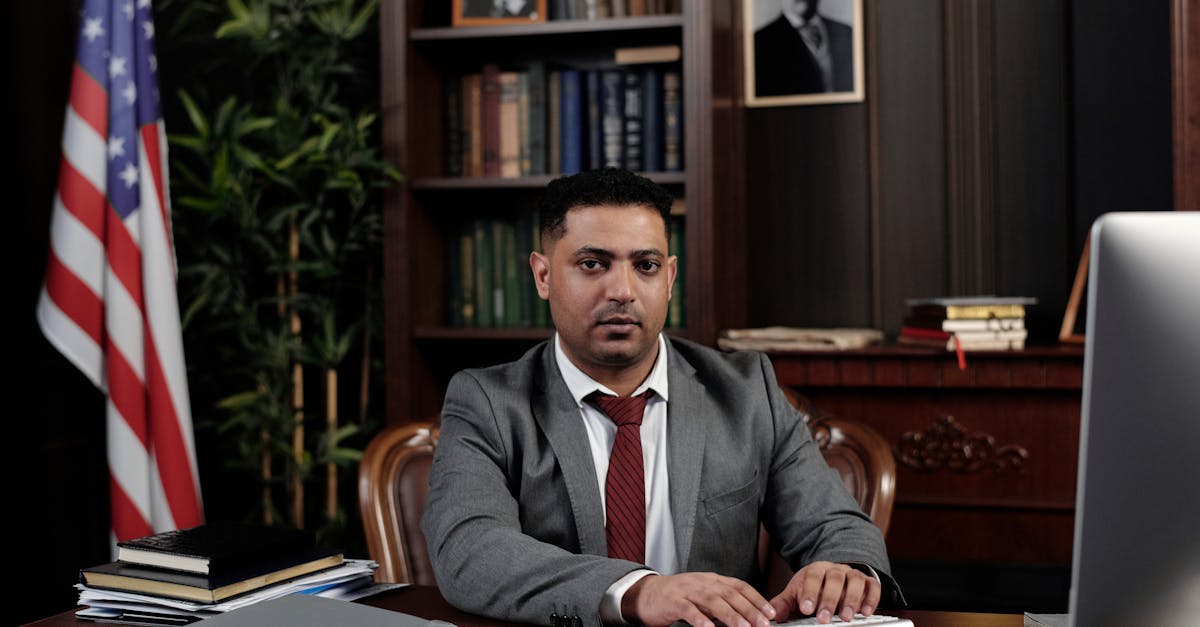
How to Evaluate a Probate Solicitor's Experience
Professional memberships can serve as a vital indicator of a solicitor's commitment to their field and ongoing professional development. Membership in relevant legal associations not only showcases a solicitor's dedication to staying updated with ind...
Read more →
How to Choose the Right Probate Solicitor
Engaging in an initial consultation is an essential step in selecting a probate solicitor. It provides an opportunity to discuss your specific needs and expectations. During this meeting, solicitors will often outline their approach to handling proba...
Read more →
Roundup of Best Practices for Choosing a Probate Solicitor
Understanding the fee structures associated with hiring a probate solicitor is essential for effective budgeting and ensuring you receive the best value for your money. Many solicitors offer a variety of pricing models such as hourly rates, fixed fee...
Read more →
Review of the Top Probate Solicitors in Your Area
Probate solicitors play a crucial role in managing the complex legal processes that arise after someone's death. They provide essential guidance to executors and beneficiaries, ensuring that the deceased's estate is administered correctly and in acco...
Read more →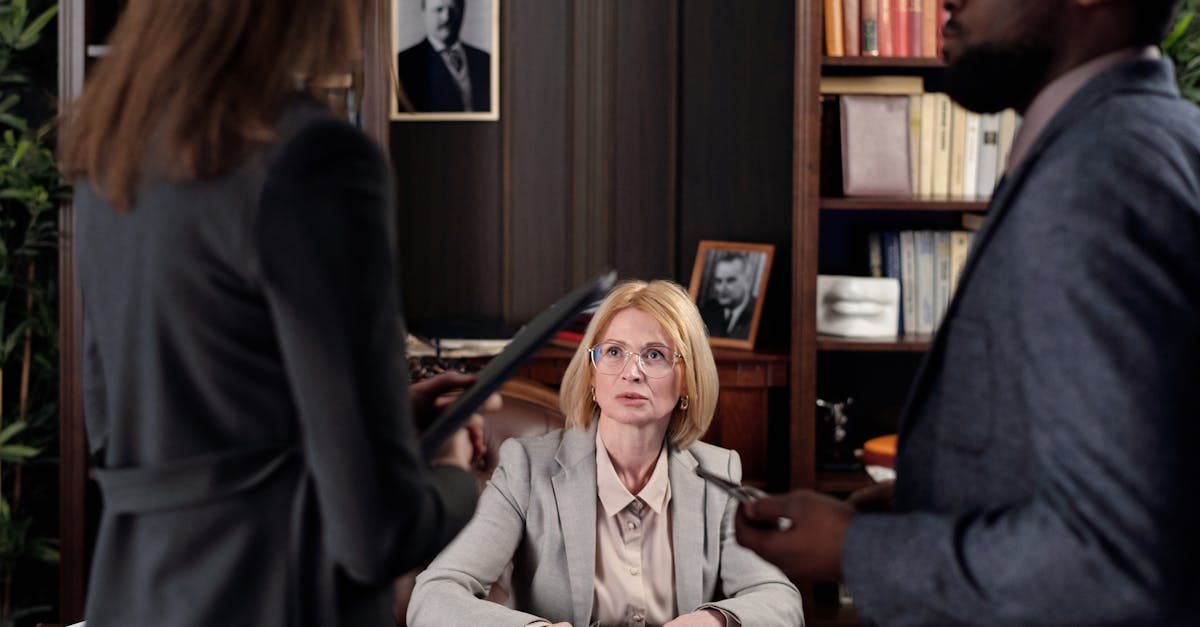
10 Essential Factors to Consider When Choosing a Probate Solicitor
When selecting a probate solicitor, understanding their fee structure is crucial. Different solicitors adopt various pricing models, which can significantly affect the overall cost of probate services. Some may charge a fixed fee, while others operat...
Read more →
The History of Probate Law and Its Impact on Solicitors
Solicitors play a crucial role in the probate process, assisting clients through complex legalities that arise after someone's death. Their primary responsibilities include the application for probate, which is necessary to legally validate a will, a...
Read more →
Why Understanding the Role of a Probate Solicitor is Crucial
Probate involves various financial implications that can significantly affect the distribution of an estate. One of the most significant costs includes the fees for legal services, which can vary depending on the complexity of the estate. Executors m...
Read more →
Why Local Knowledge Matters When Selecting a Probate Solicitor
Navigating the complexities of probate law can be challenging, especially when the legal language and procedures are unfamiliar. A solicitor with local expertise often has a keen awareness of community practices and norms that can significantly enhan...
Read more →
What are the Key Questions to Ask a Probate Solicitor
Understanding how frequently updates will be provided is essential when working with a probate solicitor. Regular communication can ease concerns and ensure that all parties are informed of any developments throughout the probate process. Inquire abo...
Read more →
What to Look for in a Probate Solicitor
Potential clients often rely heavily on the experiences of others when selecting a probate solicitor. Testimonials can provide valuable insights into a solicitor’s approach, professionalism, and ability to manage sensitive situations. Positive feed...
Read more →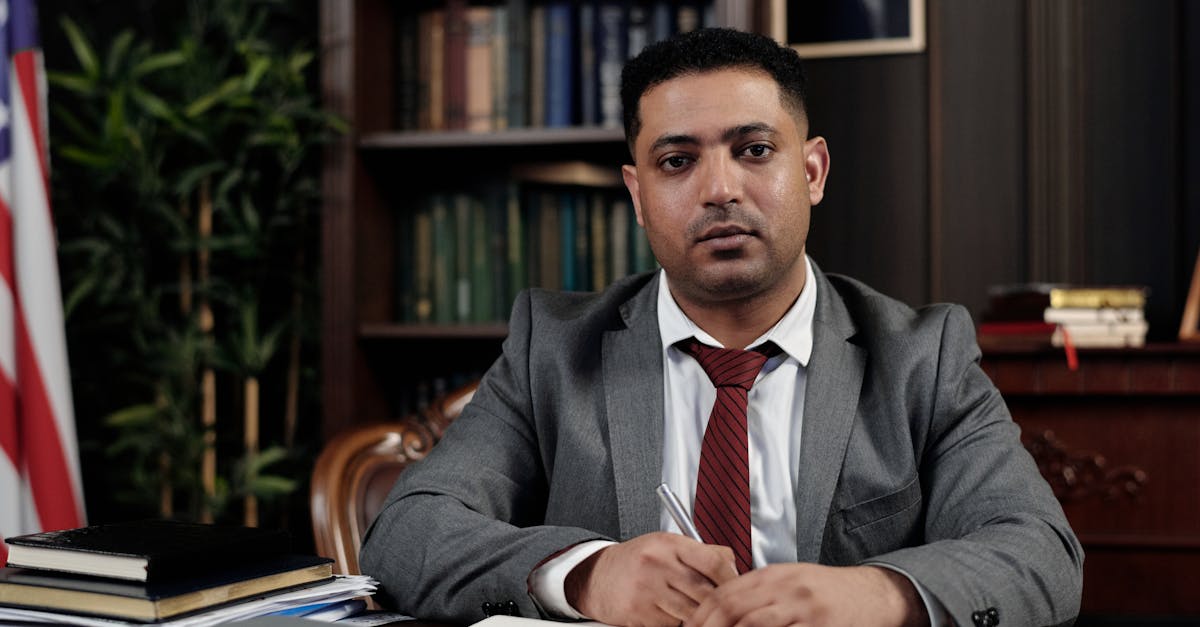
How to Compare Fees and Services of Probate Solicitors Effectively
When you schedule an initial consultation with a probate solicitor, it's a valuable opportunity to gauge their expertise and understand their approach to handling your case. During this meeting, solicitors typically discuss your specific needs and th...
Read more →
How to Choose the Right Probate Solicitor for Your Needs
Initial consultations serve as an opportunity for both you and the solicitor to assess compatibility. During this meeting, you can outline your specific probate concerns, allowing the solicitor to showcase their expertise and approach to your case. I...
Read more →
Review of the Top Probate Solicitors in Your Area
The probate process can seem daunting at first, but understanding its key stages can alleviate some of that apprehension. Initially, the executor of the deceased's estate must locate and organise important documents, particularly the will. This docum...
Read more →
Roundup of Essential Tips for Choosing a Probate Solicitor
When selecting a probate solicitor, understanding their fee structures is crucial. Various firms offer distinct pricing models, which can significantly impact the overall cost of probate services. Some solicitors charge on an hourly basis, while othe...
Read more →
Why Local Knowledge Matters in Probate Cases
Estate distribution is often heavily influenced by local customs and cultural practices. Different communities may have unique rituals and guidelines that govern how assets are valued and divided among heirs. Understanding these nuances is essential ...
Read more →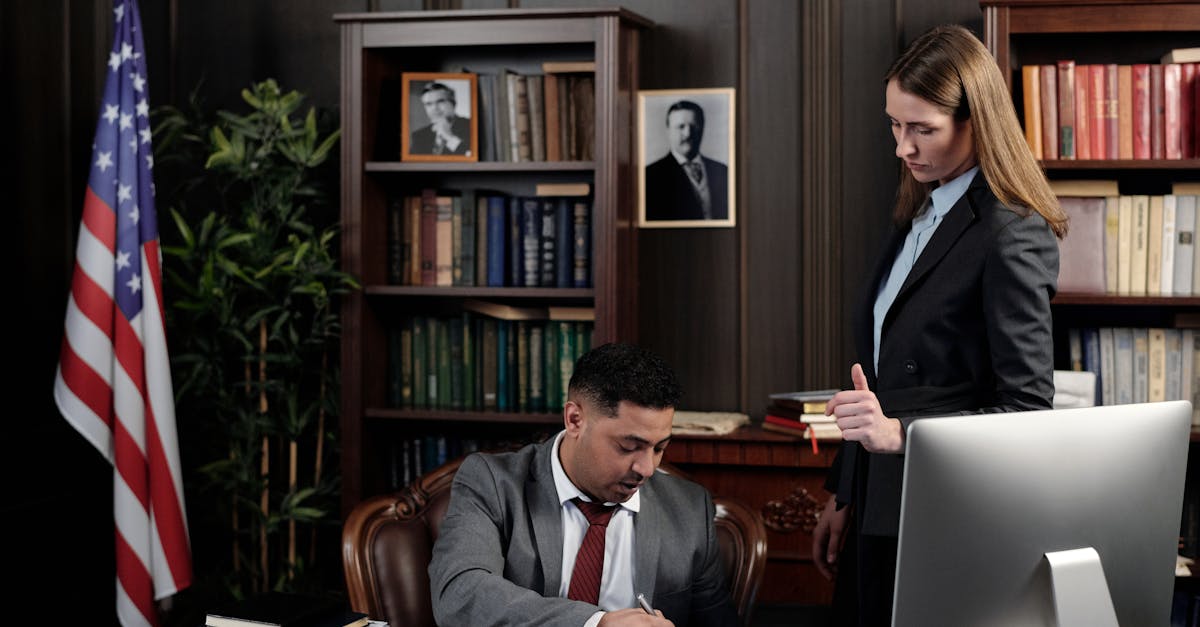
The History of Probate Law in the UK
The management of an estate following an individual's death encompasses various administrative tasks that must be carried out systematically. Executors, appointed by the deceased or designated by the court, are responsible for collecting the assets a...
Read more →
10 Questions to Ask a Probate Solicitor
When seeking probate, a solicitor requires specific documentation to initiate the process effectively. This includes the original will, if one exists, along with any codicils. Additionally, details regarding the deceased's financial affairs are essen...
Read more →
Why You Should Interview Multiple Probate Solicitors
Recommendations and reviews serve as valuable tools when choosing a probate solicitor. Many people rely on personal experiences from friends or family who have navigated the probate process. These firsthand accounts can reveal not only the solicitor'...
Read more →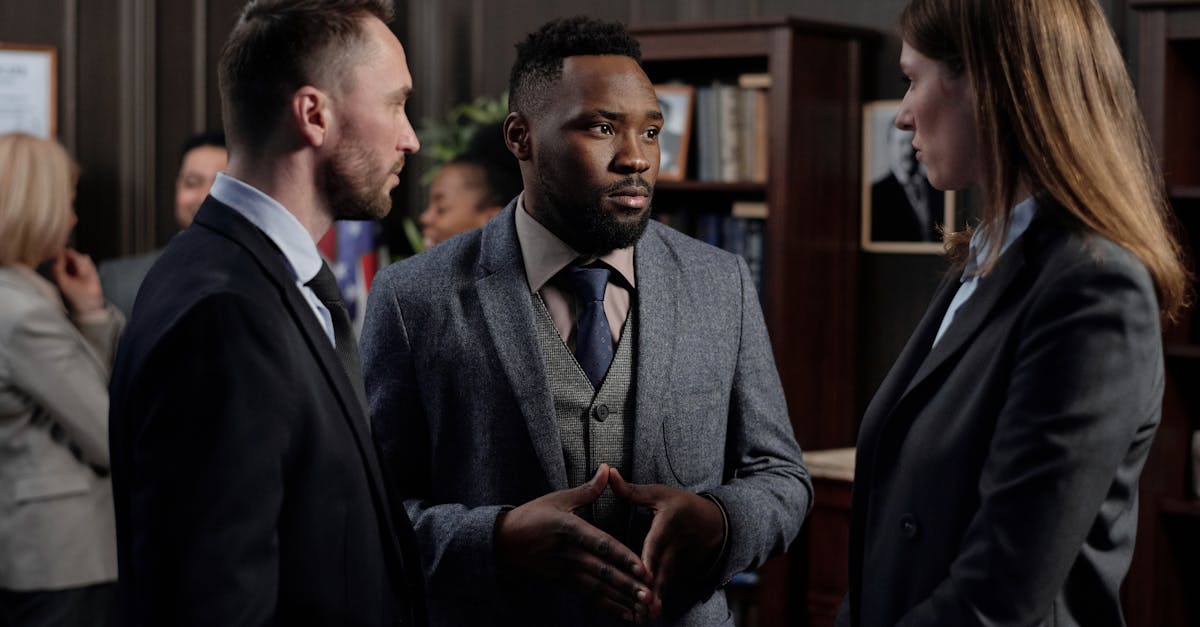
What to Look for in a Probate Solicitor
Probate law is a broad field encompassing various specialisations that cater to different client needs. Some solicitors may focus specifically on estate management, guiding clients through the complexities of asset distribution and inheritance tax im...
Read more →
What to Ask a Probate Solicitor Before Hiring
When hiring a probate solicitor, understanding their areas of expertise is essential. Many solicitors may offer general services, but others specialise in specific facets of probate law, such as estate administration, will disputes, or inheritance ta...
Read more →
How to Evaluate a Probate Solicitor's Expertise
Effective communication is a cornerstone of any strong client-solicitor relationship. A probate solicitor should be able to convey complex legal concepts in a manner that is understandable and accessible. Their ability to listen attentively to your c...
Read more →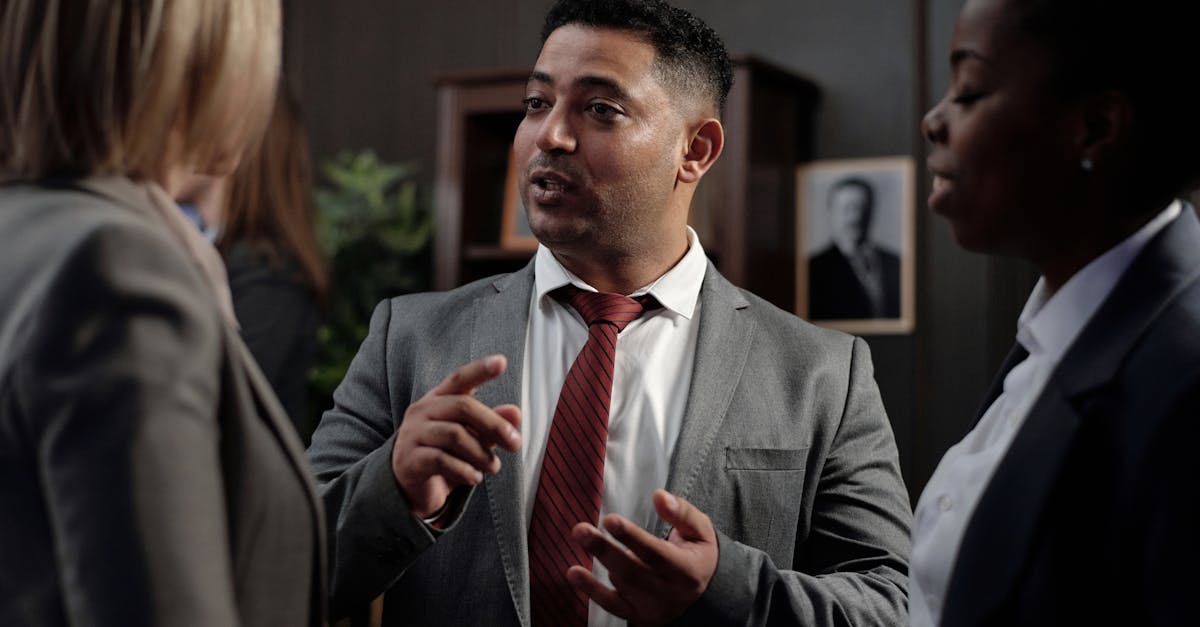
How to Choose the Right Probate Solicitor
In the field of probate law, understanding fee structures is crucial for making an informed decision. Different solicitors offer various pricing models, which can impact the overall cost of managing an estate. Fixed fees provide clarity and predictab...
Read more →
Roundup of Essential Tips for Choosing a Probate Solicitor
When selecting a probate solicitor, client reviews and testimonials provide invaluable insights into their expertise and service quality. Many potential clients share their experiences online, enabling you to gauge a solicitor's reputation within the...
Read more →
10 Questions to Ask a Probate Solicitor
Understanding the communication process with your probate solicitor is crucial for staying informed throughout the case. Solicitors may use various methods to provide updates, including emails, phone calls, or face-to-face meetings. It’s important ...
Read more →
The History of Probate Law in the UK
The 19th century marked a significant period in the evolution of probate law in the UK, characterised by a growing understanding of the need for a structured approach to estate management after death. Before this period, the probate process was often...
Read more →
Review of the Top Probate Solicitors in Your Area
Probate law encompasses various specialisations that cater to different aspects of estate management and inheritance. Some solicitors focus specifically on contentious probate matters, which involve disputes among beneficiaries or challenges to the v...
Read more →
Why You Should Ask Questions Before Hiring a Probate Solicitor
Having expertise in local laws and regulations can significantly impact the outcome of a probate case. Each jurisdiction may have unique requirements and nuances that influence how the probate process unfolds. A solicitor well-versed in these local i...
Read more →
Why Local Knowledge is Crucial in Probate Matters
Navigating tax regulations is vital when dealing with probate matters. Different regions may have specific laws affecting estate taxes, inheritance taxes, and other financial obligations associated with the transfer of assets after an individual's de...
Read more →
What are the Key Factors in Selecting a Probate Solicitor
When selecting a probate solicitor, understanding their fee structure is essential. A clear and transparent pricing model helps clients gauge the financial implications of their choices. Solicitors may offer various fee arrangements, such as fixed fe...
Read more →
What to Look for in a Probate Solicitor
Effective communication sets the foundation for a successful relationship between you and your probate solicitor. It encompasses not only the clarity of their explanations but also their willingness to listen to your concerns and answer your queries ...
Read more →
How to Evaluate a Probate Solicitor's Experience
Finding the right probate solicitor is crucial for navigating the complexities of estate management. During the initial meeting, it is important to assess not only their qualifications but also their approach to client relations. Observing how they c...
Read more →
How to Choose the Right Probate Solicitor
Arranging an initial consultation with a probate solicitor is an essential step in the estate administration process. Potential clients should prepare a list of relevant questions and documents to ensure a productive meeting. This preparation can cov...
Read more →
Roundup of Key Responsibilities of Probate Solicitors
The process of distributing assets to beneficiaries requires careful adherence to the deceased’s wishes as outlined in their will. Probate solicitors play a crucial role during this phase, ensuring that all legal requirements are met. They will fir...
Read more →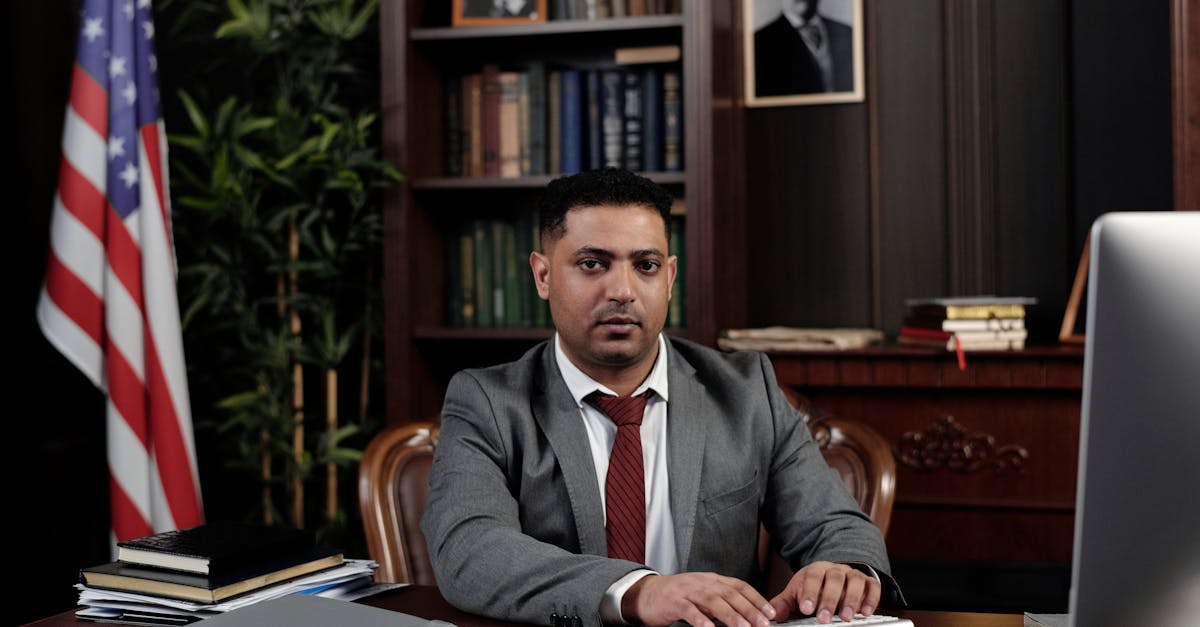
Review of Top Probate Solicitors in Your Area
Probate solicitors play a crucial role in the legal process surrounding the distribution of a deceased person's estate. They provide guidance and support to the executors or administrators of the estate, ensuring that all legal requirements are met. ...
Read more →
10 Essential Duties of a Probate Solicitor
One of the initial steps in the probate process involves an accurate assessment of the deceased's estate. This includes compiling a comprehensive list of all assets, which may encompass real estate, bank accounts, investments, and personal belongings...
Read more →
Historical Overview of Probate Law in the UK
The Administration of Estates Act 1925 significantly reformed the administration of deceased estates in the UK. This legislation aimed to streamline the probate process, making it more efficient and accessible. It established clear guidelines for the...
Read more →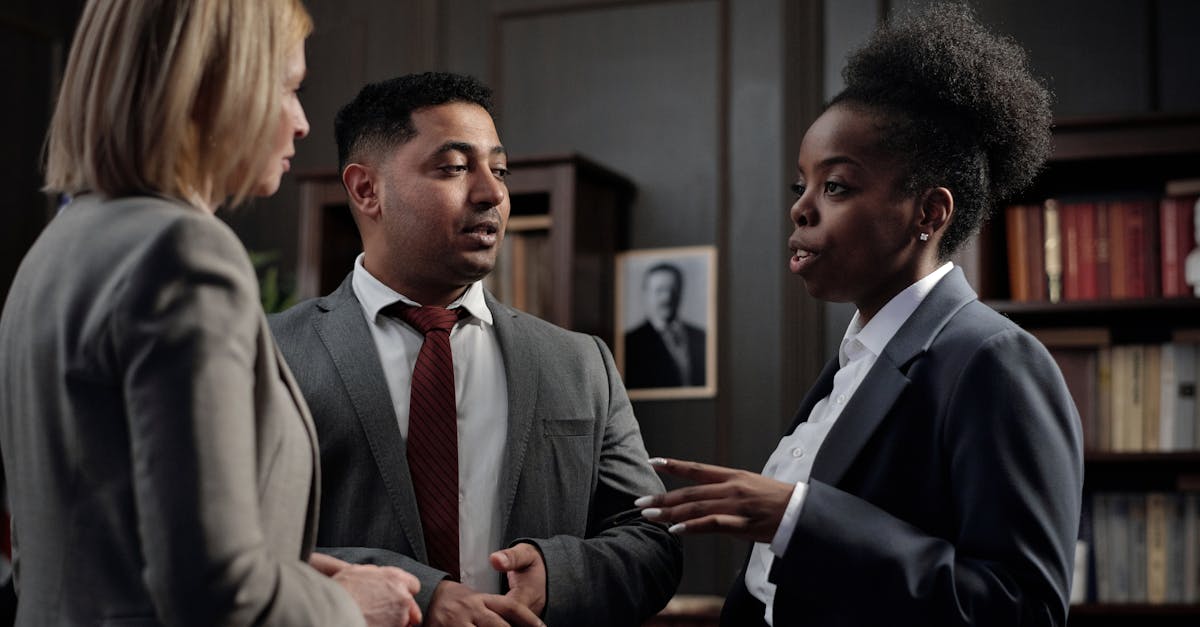
What to Expect During Estate Administration
The distribution of assets involves carefully allocating the estate according to the deceased's wishes as outlined in their will. Executors are responsible for ensuring that all beneficiaries receive their respective inheritances. This process requir...
Read more →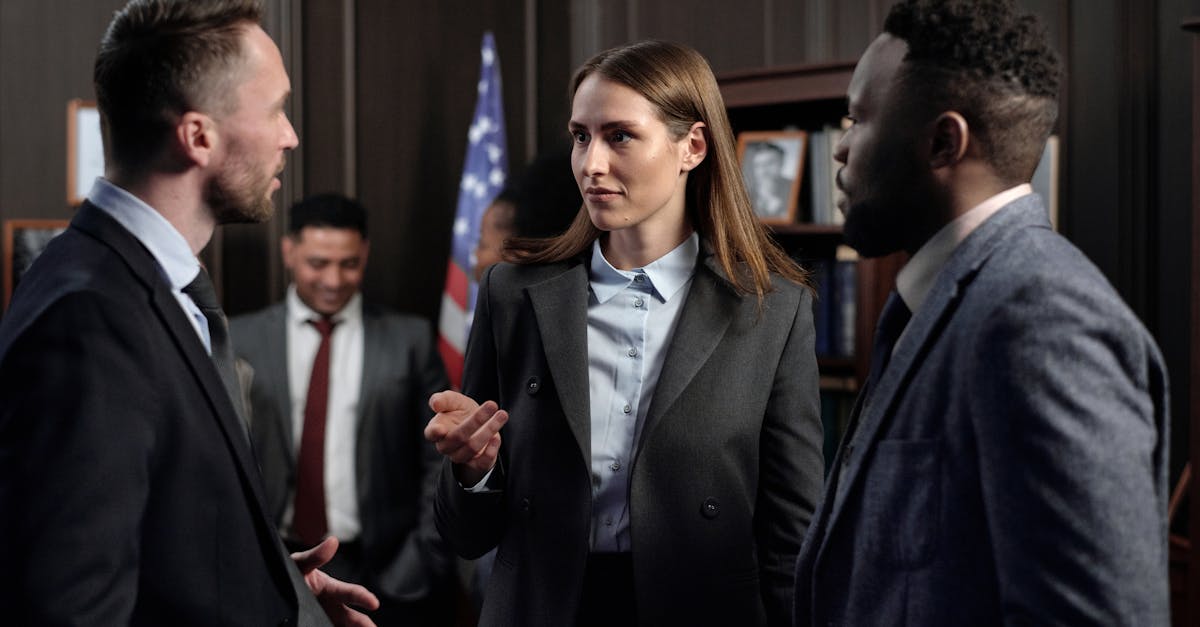
Why Ethical Considerations Matter in Probate Law
Effective communication is vital in the realm of probate law. Transparency ensures that all parties involved—beneficiaries, executors, and legal representatives—understand the processes, obligations, and expectations from the outset. It fosters a...
Read more →
Why Compliance with Legal Regulations is Crucial
Effective risk management strategies serve as a foundation for organisations aiming to maintain compliance with legal regulations. Identifying potential risks involves a thorough analysis of the current operational processes. Tools such as risk asses...
Read more →
What is the Role of a Probate Solicitor
In the intricate realm of will disputes, a probate solicitor plays a crucial role in navigating the complexities of the legal system. They provide essential guidance to executors and beneficiaries alike, ensuring that every action taken is in accorda...
Read more →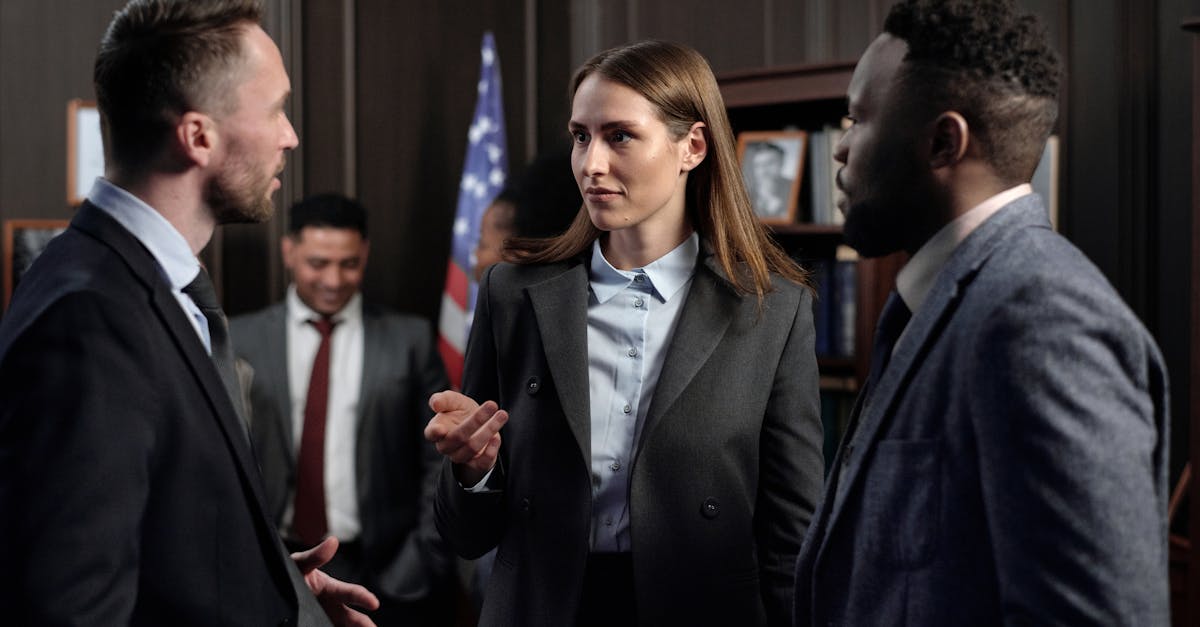
How to Understand Inheritance Tax Obligations
Effective estate planning is essential for minimising inheritance tax liabilities. Individuals should consider making gifts during their lifetime, as this can reduce the size of their estate. There are various exemptions and reliefs available for cer...
Read more →
How to Choose a Probate Solicitor
Understanding the cost associated with hiring a probate solicitor is essential for making an informed decision. Solicitors may charge in various ways, including fixed fees for standard services or hourly rates for more complex issues. It's crucial to...
Read more →
Review of Leading Probate Solicitors in the UK
Probate solicitors play a crucial role in managing the legal aspects of a deceased person's estate. They ensure that all assets are properly accounted for and distributed according to the will or the laws of inheritance if no valid will exists. Compr...
Read more →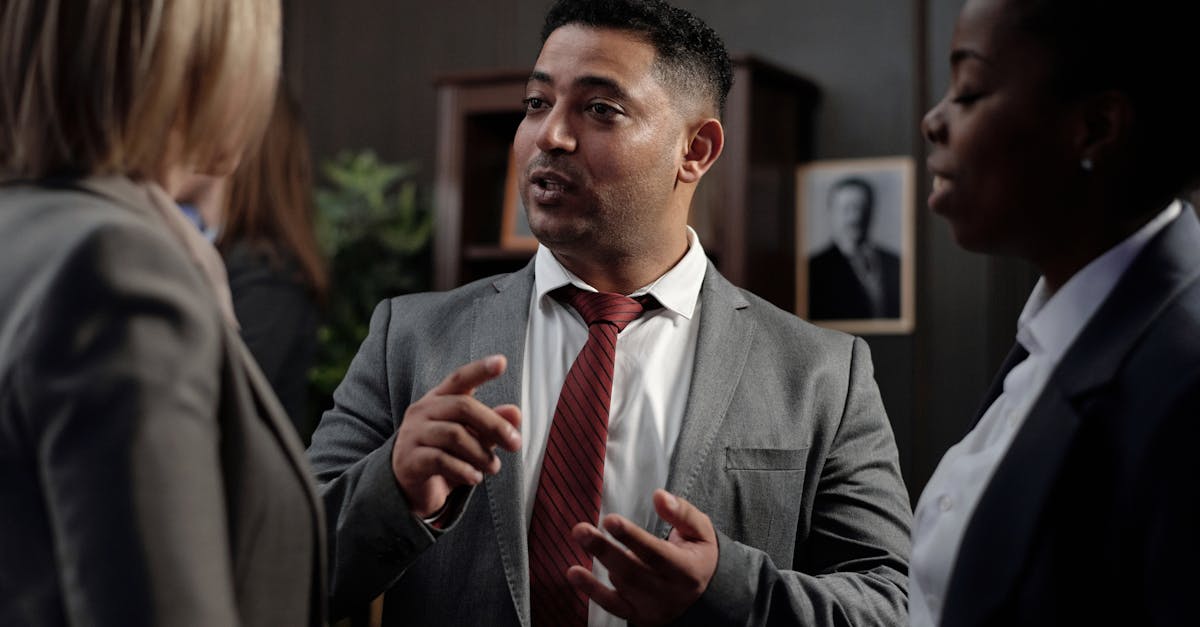
Roundup of Recent Changes in Probate Law
Recent legislative amendments have refined the rules governing intestate succession, which comes into play when an individual dies without leaving a valid will. Changes have clarified the distribution of assets among relatives, particularly for non-m...
Read more →
7 Key Duties of a Probate Solicitor
A probate solicitor plays a crucial role in determining the value of estate assets. This process involves a comprehensive assessment of various items, including property, investments, and personal belongings. Each asset category may require specific ...
Read more →
Why You Need a Probate Solicitor
Disputes can arise during the probate process for various reasons. Family members may contest the validity of the will, while disagreements over asset distribution can lead to heightened tensions. In such situations, the emotional stakes are often hi...
Read more →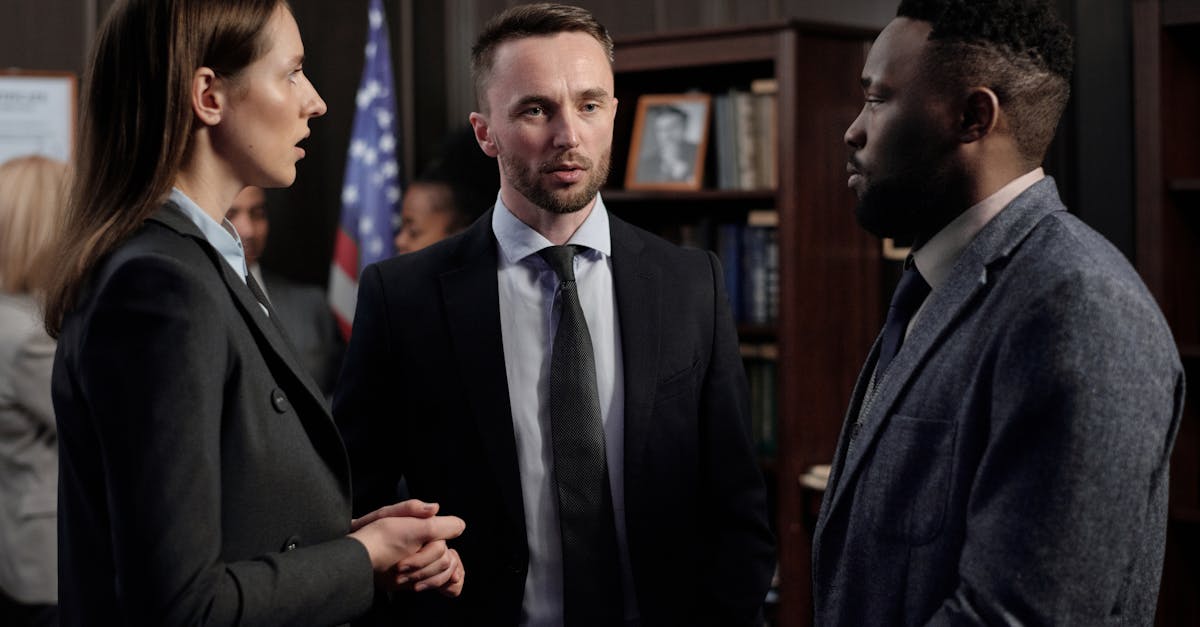
The History of Probate Law in the UK
The Administration of Estates Act 1925 was a significant milestone in the evolution of probate law in the United Kingdom. This legislation aimed to simplify the process of administering the estates of deceased persons. Prior to its implementation, th...
Read more →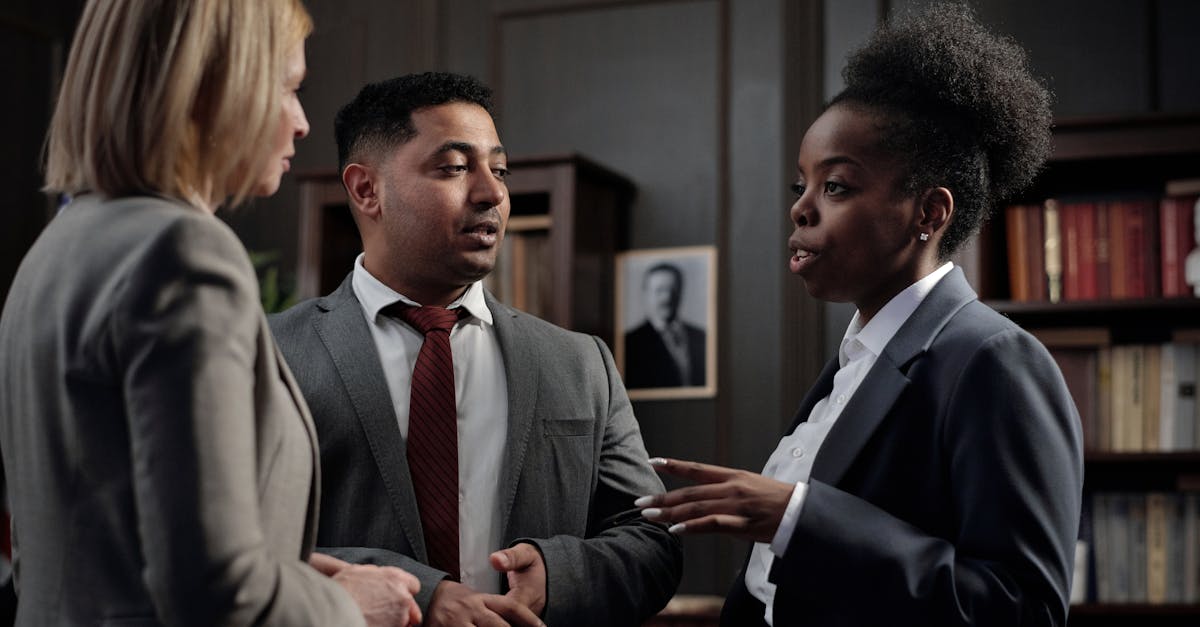
Why is Inheritance Tax Important
Many individuals associate inheritance tax solely with the wealthy and believe it primarily targets large estates. This perception leads to the assumption that only high-net-worth families will face this tax burden. In reality, many estates may fall ...
Read more →
What to Expect During Estate Administration
The distribution of assets marks a significant step in estate administration. Executors or administrators are tasked with ensuring that the estate is divided according to the deceased's wishes as outlined in the will or, in the absence of one, in acc...
Read more →
What Does a Probate Solicitor Do
Probate can have significant tax implications that need careful consideration. One of the primary concerns is inheritance tax, which may be levied on the value of the estate once the person has passed away. Executors must determine if the estate's va...
Read more →
How to Ensure Compliance with Legal Regulations in Probate
Establishing the value of an estate is a critical step in the probate process. This valuation encompasses various components, such as real estate, personal property, financial accounts, and any other assets. Professional appraisers or qualified estat...
Read more →
How to Choose the Right Probate Solicitor
When beginning the search for a probate solicitor, gathering recommendations can significantly simplify the process. Speaking with friends, family, and colleagues who have experience with similar legal needs can yield valuable insights. Personal acco...
Read more →
Roundup of Legal Regulations Affecting Probate Solicitors
In the realm of probate, financial regulations play a crucial role in determining how estates are administered. Solicitors must navigate these regulations to ensure compliance with laws concerning the management and distribution of assets. This inclu...
Read more →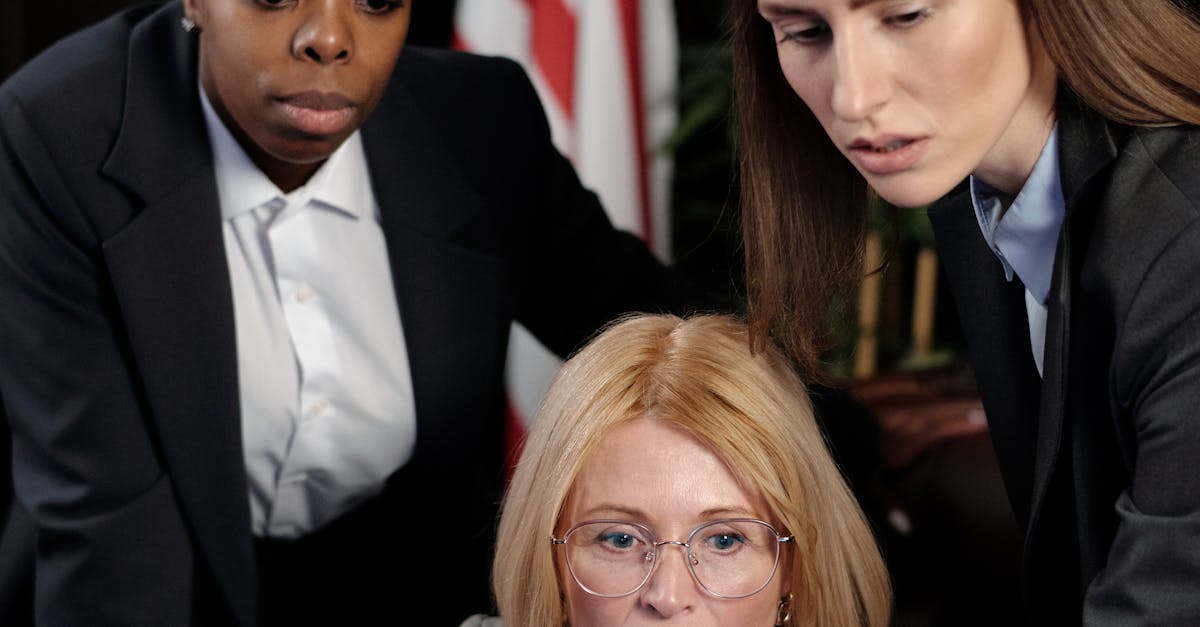
Review of Top Probate Solicitors in the UK
When exploring probate services, understanding the various fees involved is crucial. Different solicitors may offer a range of pricing structures, including flat fees, hourly rates, or a percentage of the estate’s value. Flat fees provide predictab...
Read more →
10 Essential Responsibilities of a Probate Solicitor
Inheritance tax can significantly impact the value of an estate being administered. Understanding the thresholds and exemptions available is crucial for both solicitors and clients. It is important to assess all assets, liabilities, and potential tax...
Read more →
The History of Probate Law and Its Evolution in the UK
The transformation of probate law in the UK has been significantly influenced by societal changes and the demands of modern life. The introduction of measures aimed at streamlining procedures has made it easier for executors to manage estates. Recent...
Read more →
Why Ethical Considerations Matter in Probate Law
Transparency in probate law serves as a critical component in fostering trust between legal professionals and their clients. Clients often experience stress and uncertainty during the probate process. When attorneys openly communicate the steps, fees...
Read more →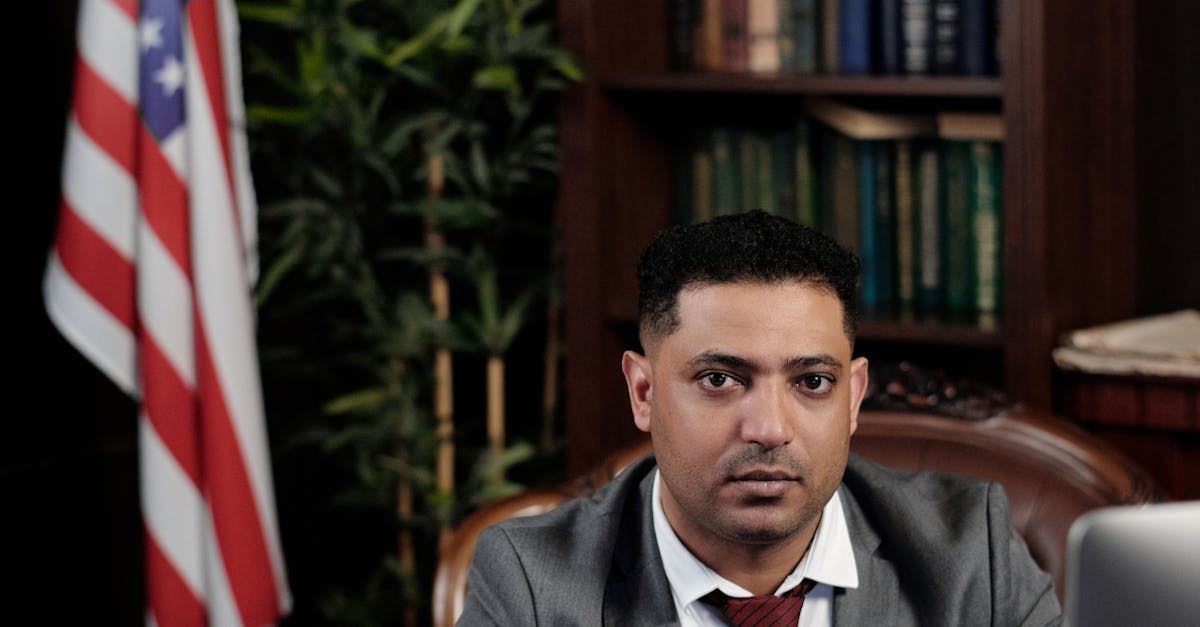
Why Compliance with Legal Regulations is Crucial for Probate Solicitors
Maintaining compliance with legal regulations is vital for probate solicitors, as it directly influences client trust. Clients seek assurance that their legal representatives uphold the highest standards of integrity and professionalism. Any lapses i...
Read more →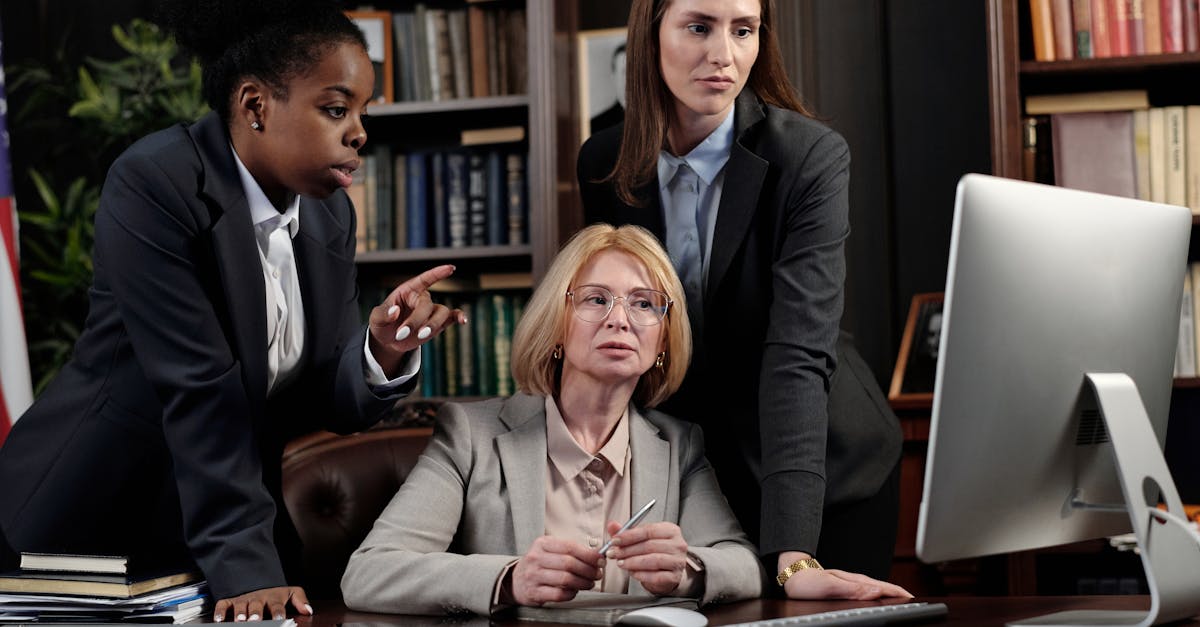
What Are the Key Duties of a Probate Solicitor
Disputes often arise during the probate process, especially when there are multiple beneficiaries or differing interpretations of a will. A probate solicitor plays a critical role in managing these conflicts, offering guidance to ensure that the wish...
Read more →
What Does a Probate Solicitor Do in Estate Administration
When an estate enters probate, a solicitor plays a pivotal role in managing the assets effectively. This often involves identifying and taking control of all estate properties, bank accounts, investments, and other financial interests. It is essentia...
Read more →
How to Navigate Inheritance Tax with a Probate Solicitor
Gifts made before death can significantly influence the overall inheritance tax liability. Owners may choose to give substantial gifts during their lifetime, which can reduce the taxable estate upon their passing. However, not all gifts are entirely ...
Read more →
Roundup of Key Responsibilities for Probate Solicitors
Probate solicitors play a crucial role in managing a deceased person's financial obligations. They are responsible for identifying outstanding debts and notifying relevant creditors. This process ensures that all claims against the estate are account...
Read more →
How to Choose the Right Probate Solicitor for Estate Administration
When selecting a probate solicitor, local knowledge plays a crucial role in navigating the estate administration process. Each jurisdiction has its nuances in terms of laws and regulations. A solicitor well-versed in the local legal landscape is bett...
Read more →
Review of the Best Probate Solicitors in Your Area
Probate solicitors provide a range of essential services tailored to navigate the complexities of estate administration. Their expertise includes obtaining the Grant of Probate and dealing with any inheritance tax implications. These professionals gu...
Read more →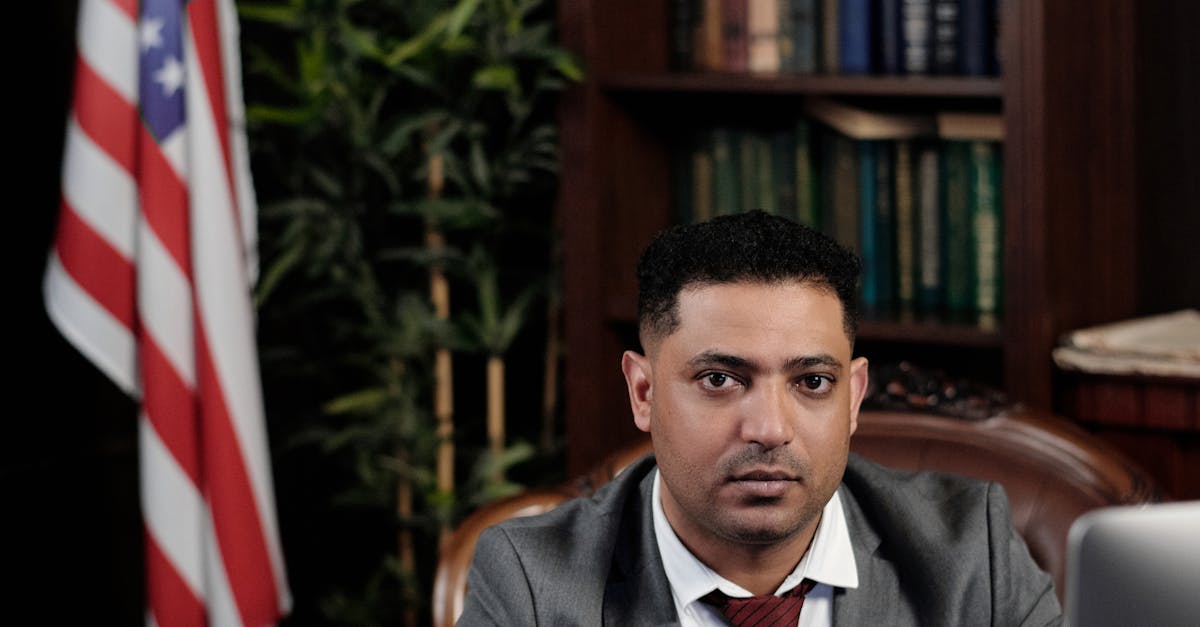
10 Essential Duties of a Probate Solicitor
Probate solicitors play a crucial role in the legal process by ensuring that all necessary court documents are filed accurately and on time. This responsibility includes submitting the application for a grant of probate, which is essential for valida...
Read more →
Historical Overview of Probate Law in the UK
The Inheritance Act 1975 marked a significant shift in the approach to inheritance law within the UK. This legislation aimed to address situations where individuals were inadequately provided for under the terms of a deceased person's will. It enable...
Read more →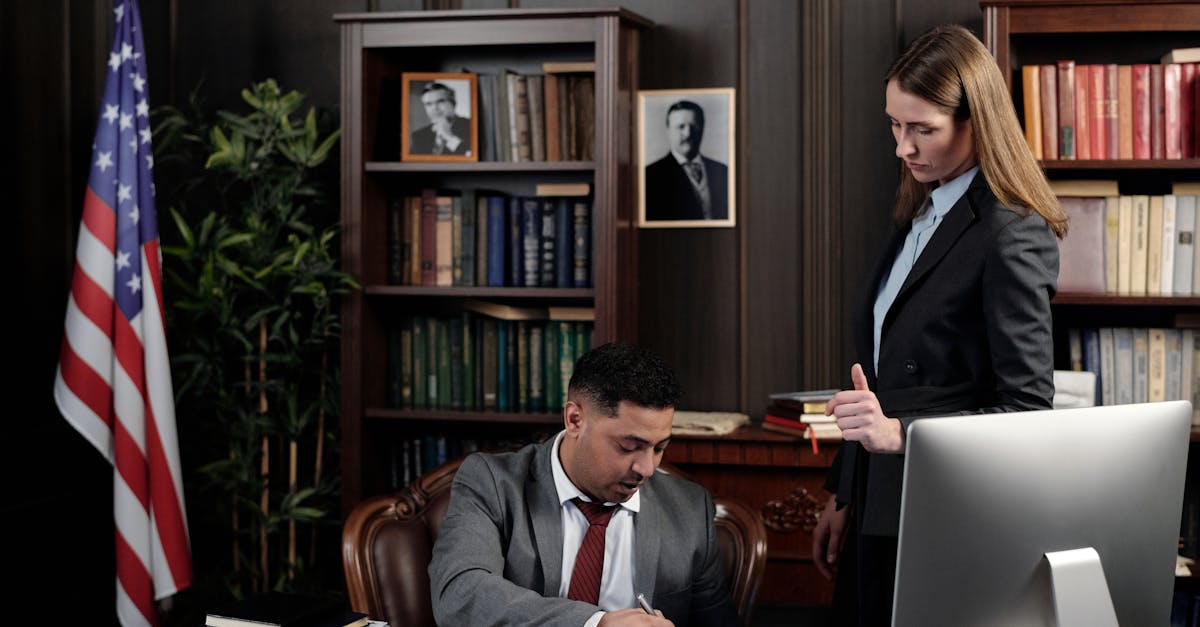
Why Understanding Legal Regulations is Crucial for Probate Solicitors
Probate law directly intersects with estate law, highlighting the procedures involved in administering a deceased person's estate. This legal area encompasses various elements such as validating wills, settling debts, and distributing assets. Underst...
Read more →
Why Ethical Considerations Matter in Probate Law
Legal professionals in the field of probate law bear a significant duty to their clients, requiring a heightened sense of accountability. Each step taken involves ensuring that clients’ wishes are respected and that their interests are thoughtfully...
Read more →
What to Know About Estate Administration Responsibilities
Effective communication with beneficiaries is crucial throughout the estate administration process. Clarity helps to manage expectations and reduces the potential for disputes. Timely updates about the estate’s progress reassure beneficiaries that ...
Read more →
What to Expect from a Probate Solicitor
Selecting a probate solicitor requires careful consideration to ensure that the individual's expertise aligns with the specific needs of your case. It is essential to look for professionals who specialise in probate law, possessing a deep understandi...
Read more →
How to Navigate Inheritance Tax Obligations
Executors and administrators play a crucial role in managing the distribution of an estate following a person's death. Executors are named in a will and are responsible for carrying out the deceased's wishes as outlined in that document. In contrast,...
Read more →
How to Choose the Right Probate Solicitor
When selecting a probate solicitor, arranging initial consultations serves as a vital step in the decision-making process. Many solicitors offer free or low-cost initial meetings, allowing you to discuss your specific needs and get a feel for their e...
Read more →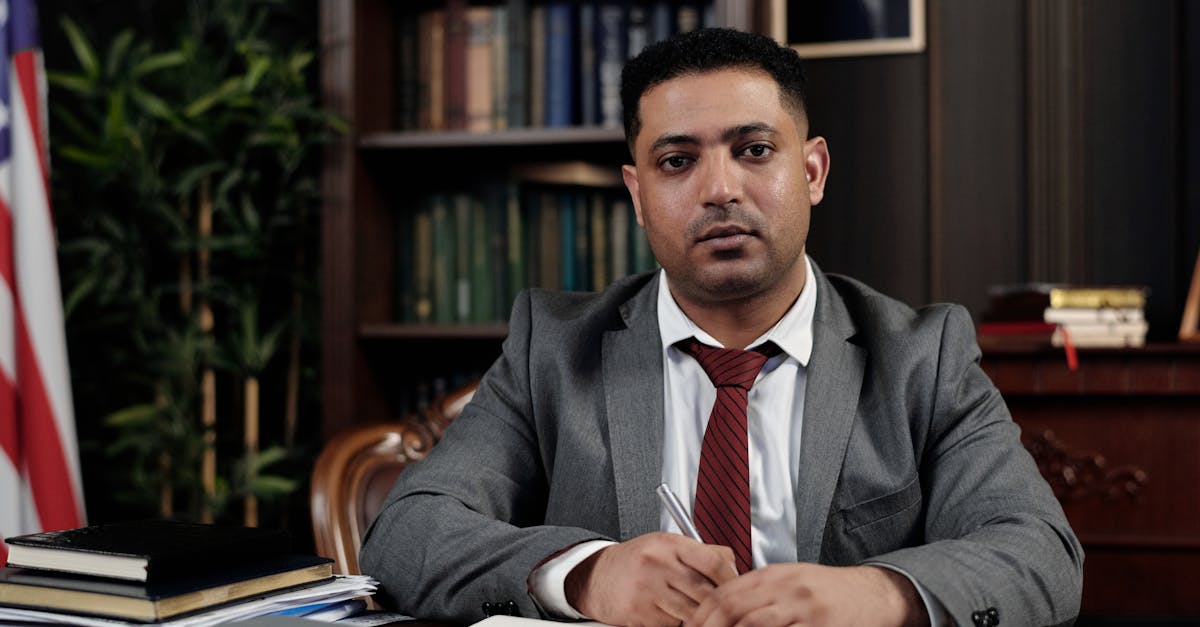
Roundup of Recent Changes in Inheritance Tax Regulations
Recent updates to inheritance tax regulations have introduced new tax rates that impact the way estates are managed and distributed. The rate has been adjusted for various asset thresholds, creating a more complex landscape for executors and benefici...
Read more →
Review of the Best Probate Solicitors in the UK
Hiring a probate solicitor often involves various costs, which can vary significantly depending on the complexity of the estate and the solicitor's fee structure. Commonly, solicitors charge either a fixed fee or an hourly rate. A fixed fee provides ...
Read more →
10 Key Duties of a Probate Solicitor
Disputes among beneficiaries can arise for various reasons, including disagreements over the interpretation of a will or perceived inequities in the distribution of assets. These conflicts often lead to prolonged emotional stress and financial strain...
Read more →
The Historical Evolution of Probate Law
The Wills Act 1837 marked a pivotal shift in the framework governing testamentary disposition in England and Wales. Prior to this legislation, the creation and validity of wills were subject to numerous legal ambiguities. The Act established clear gu...
Read more →
Why Ethical Considerations Matter in Probate Law
In the realm of probate law, particular attention must be given to beneficiaries who may lack the capacity to advocate for themselves. This group often includes minors or individuals with cognitive impairments. The responsibility of ensuring their in...
Read more →
Why Understanding Inheritance Tax is Crucial
Inheritance tax is a critical consideration for anyone planning their estate. The thresholds and rates can greatly impact the amount owed by heirs after a death. In the UK, the standard threshold stands at £325,000 per individual. Estates valued bel...
Read more →
What to Expect During Estate Administration
Estate administration involves various tax implications that beneficiaries should consider. One of the primary concerns is inheritance tax, which is levied on the value of the estate above a certain threshold. The government sets this threshold, and ...
Read more →
What is the Role of a Probate Solicitor
Disputes over estates can arise for various reasons, including disagreements among beneficiaries or challenges to the validity of a will. A probate solicitor plays a crucial role in navigating these complex situations, offering expertise in legal doc...
Read more →
How to Navigate the Duties of a Probate Solicitor
Effectively managing estate assets is crucial for a probate solicitor. Initially, it involves identifying and assessing all assets belonging to the deceased. This includes property, investments, and personal belongings. A thorough inventory ensures n...
Read more →
How to Choose the Right Probate Solicitor
Client testimonials provide valuable insight into the experiences of others who have worked with a particular probate solicitor. Reading through these reviews can help potential clients gauge the solicitor's effectiveness, communication skills, and o...
Read more →
Roundup of Resources for Understanding the Probate Process
The probate process can incur various expenses that need careful consideration. Legal fees often represent a significant portion of these costs, as professional guidance is essential for navigating the complexities involved. In addition to legal fees...
Read more →
Review of the Top Probate Solicitors in the UK
Edinburgh boasts a range of reputable probate solicitors known for their expertise and dedication to clients. Many of these firms have a long history of assisting individuals and families through the complexities of estate administration. Their under...
Read more →
10 Common Mistakes to Avoid During Probate
Effective asset management is crucial during the probate process. Executors must maintain a clear inventory of estate assets, ensuring proper documentation and valuation. Neglecting to secure valuable items or failing to manage financial accounts pru...
Read more →
The History of Probate Law in the UK
The Inheritance (Provision for Family and Dependants) Act 1975 introduced significant reforms to the law surrounding wills and inheritance in the UK. This legislation aimed to address situations where family members and other dependants might be inad...
Read more →
Why Do Probate Costs Vary?
The probate process can be a lengthy affair, influenced by various factors such as the complexity of the estate and the jurisdiction’s requirements. Some estates require the completion of specific tasks prior to obtaining the grant of probate, whic...
Read more →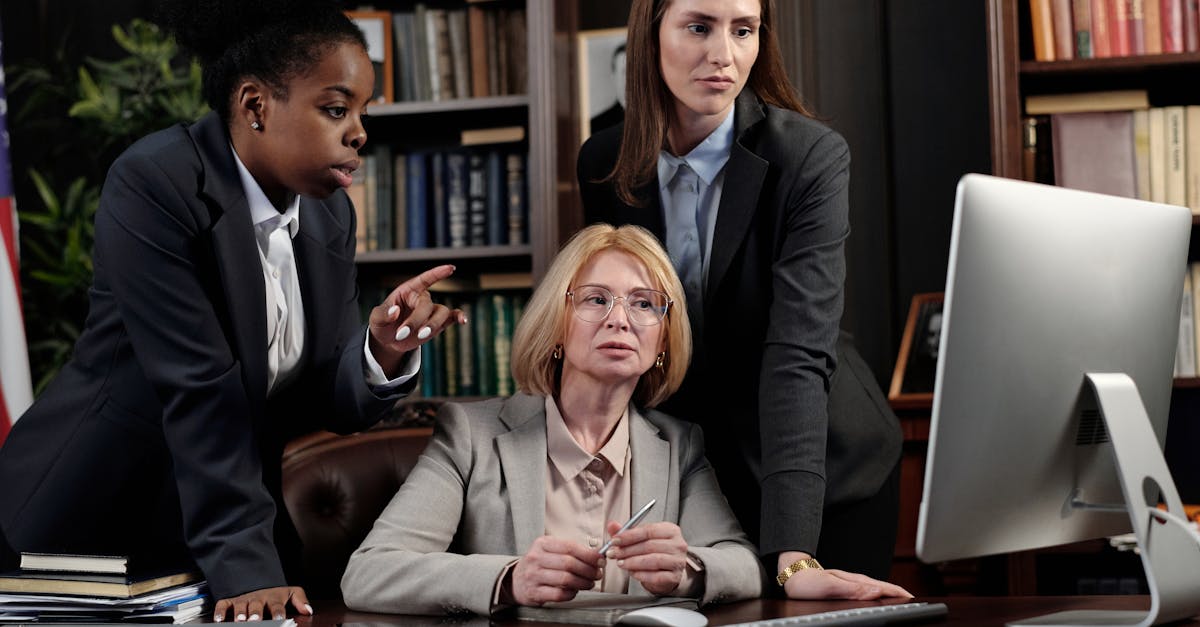
Why is Hiring a Probate Solicitor Important?
Navigating the intricacies of probate law can be a daunting task. The legal landscape often involves numerous regulations and requirements that must be adhered to throughout the estate management process. A probate solicitor brings invaluable experti...
Read more →
What to Expect When Applying for a Grant of Probate
The timeframe for processing a grant of probate can vary significantly based on several factors. An application can take anywhere from a few weeks to several months to be completed. Variations depend on the complexity of the estate, the presence of d...
Read more →
What is the Probate Process?
To ensure a fair distribution of an estate, it is essential to determine its total value accurately. This involves assessing all assets, including real property, financial accounts, personal belongings, and any investments held by the deceased. Profe...
Read more →
How to Navigate the Costs Associated with Probate
During the probate process, various disbursements can arise that impact the overall costs associated with estate administration. These expenses often include court fees for processing the probate application, which can vary depending on the value of ...
Read more →
How to Choose the Right Probate Solicitor
When selecting a probate solicitor, understanding the fee structure is vital. Different solicitors have varied pricing methods, which can include hourly rates, fixed fees, or a percentage of the estate's value. Opting for a transparent fee structure ...
Read more →
Roundup of Essential Resources for Navigating Probate
The probate process can have significant tax implications for the estate and its beneficiaries. One of the primary concerns is inheritance tax, which may be applicable depending on the value of the deceased's estate. In the UK, if the estate's value ...
Read more →![Review of the Best Probate Solicitors in [Your Area]](review-of-the-best-probate-solicitors-in-your-area-425591.jpg?key=mqh97R)
Review of the Best Probate Solicitors in [Your Area]
Engaging a probate solicitor typically begins with an initial consultation. During this meeting, the solicitor will gather essential information about the deceased's estate and any relevant documentation. This stage is crucial for establishing a clea...
Read more →
5 Common Challenges During the Probate Process
Navigating the probate process often involves a maze of tax implications that executors need to comprehend thoroughly. The estate may be subject to various taxes, including inheritance tax, income tax, and potentially capital gains tax. Executors mus...
Read more →
Why Do Costs Vary in the Probate Process?
Probate can involve a range of specialty services that contribute to the overall expenses incurred during the process. These services may include valuations of complex assets such as real estate, businesses, or artworks. Hiring professionals like app...
Read more →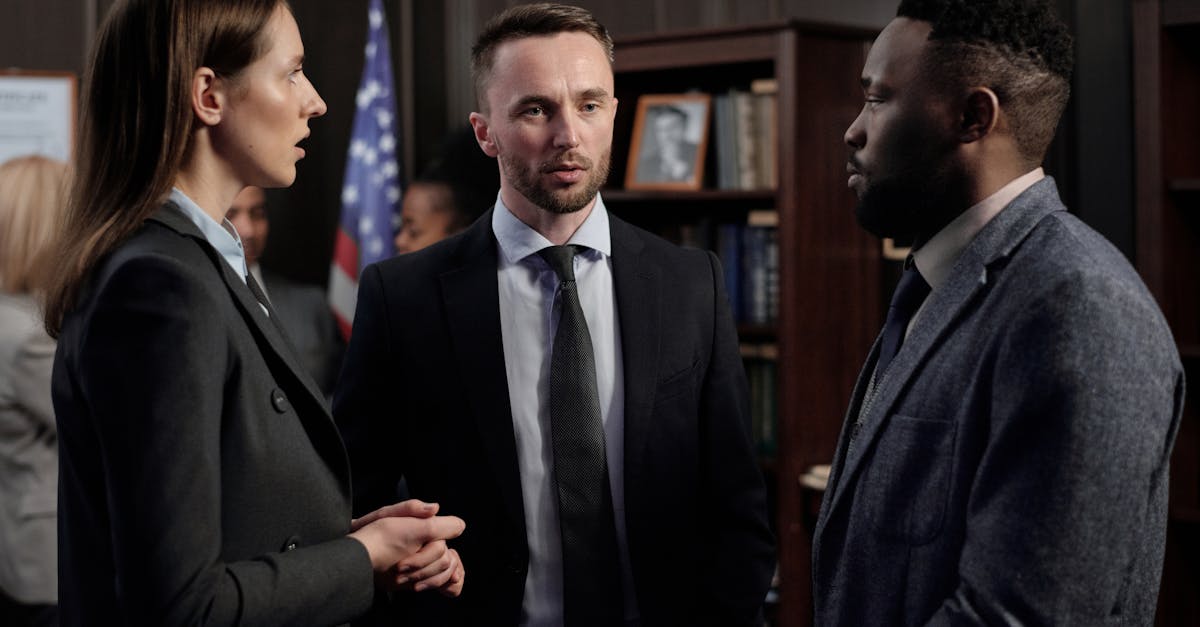
Historical Overview of Probate Law in the UK
The Probate Registry was officially established in the late 19th century, formalising the process of probate within the United Kingdom’s legal framework. This development addressed the growing need for a structured approach to dealing with deceased...
Read more →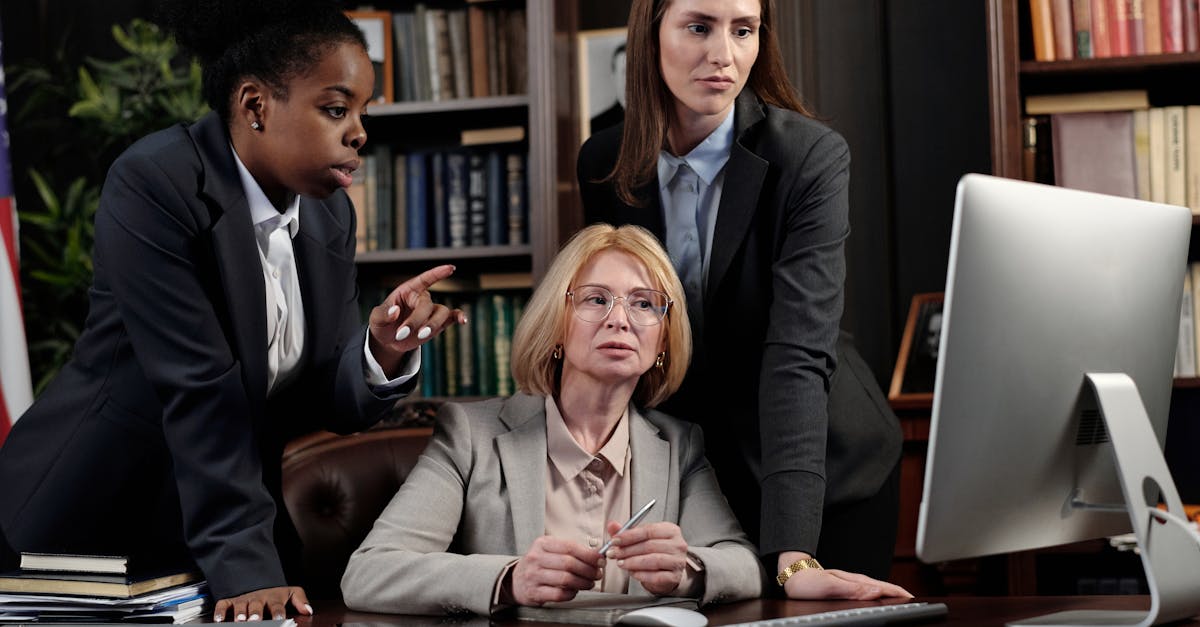
Why is Understanding Timeframes in Probate Important?
The law requires executors to notify beneficiaries and heirs about the probate process. This notification must occur within a specific timeframe established by local laws. Failure to meet these legal obligations can lead to disputes or potential chal...
Read more →
What to Expect During the Probate Process
During the probate process, one of the primary responsibilities of the executor or administrator is to address any outstanding debts and tax obligations of the deceased. This includes notifying creditors and ensuring that all debts are settled before...
Read more →
What is the Probate Process?
An executor plays a crucial role in managing the estate of a deceased person. This individual is often named in the will and takes on the responsibility of ensuring that the wishes of the deceased are carried out. The executor must gather all assets,...
Read more →
How to Prepare for a Grant of Probate
The process of obtaining a grant of probate can often be cumbersome, with various challenges arising at different stages. One significant hurdle is the collection of necessary documentation. This can be particularly complicated if the deceased's fina...
Read more →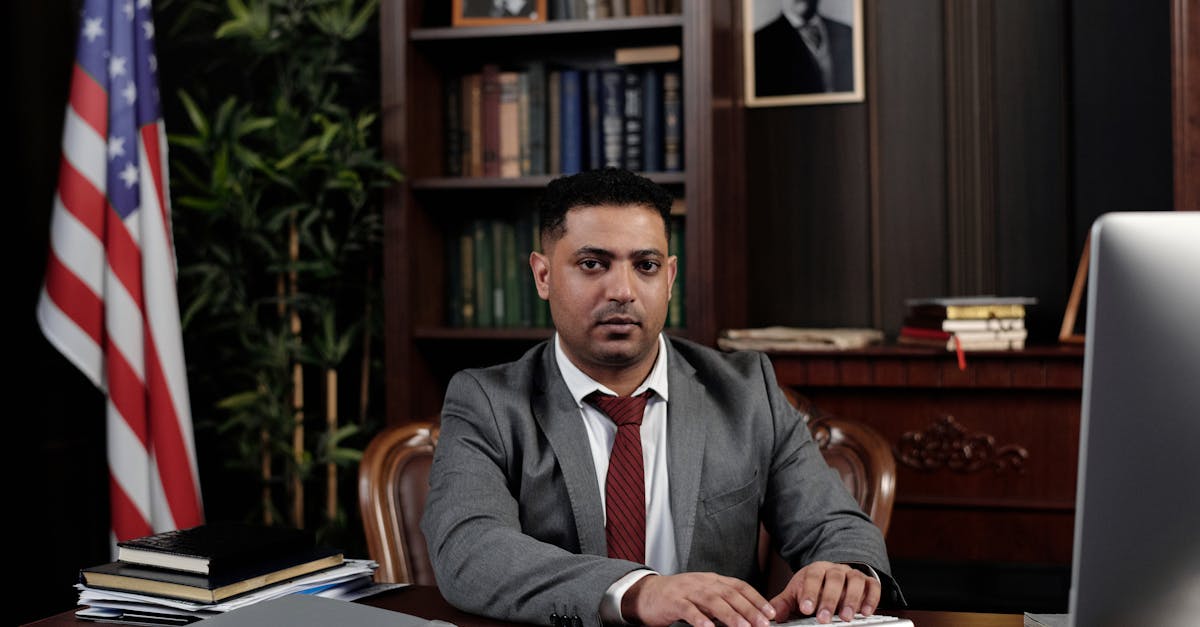
How to Navigate the Probate Process Efficiently
At the heart of the probate process, the management of an estate's debts and liabilities is crucial for ensuring a smooth transition of assets to the beneficiaries. Executors must first identify all outstanding debts, which may include mortgages, per...
Read more →
Roundup of Recent Changes in Probate Laws
Recent changes to estate tax regulations have brought notable shifts in estate planning. The increase in exemption limits has led to a reduction in the number of estates subject to tax. This modification allows individuals to transfer larger assets w...
Read more →
Review of Top Probate Solicitors in the UK
Edinburgh is home to a variety of probate solicitors who specialise in navigating the complexities of estate administration. These professionals possess extensive knowledge of both local laws and the intricacies of the probate process, making them in...
Read more →
7 Common Challenges Faced During the Probate Process
The estate of a deceased individual is often encumbered with various debts and liabilities that must be addressed during the probate process. Executors are tasked with identifying these obligations, which may include outstanding loans, credit card de...
Read more →
Historical Overview of Probate Law in the UK
The probate registry emerged as a pivotal institution in the management of wills and estates within England and Wales. Established to streamline the process of granting probate, it provided a structured framework for individuals seeking to validate t...
Read more →
Why You Should Hire a Probate Solicitor
Engaging the services of a probate solicitor involves various costs that can differ significantly based on several factors. Fees may be structured hourly or as a fixed percentage of the estate's value. Additional expenses could arise from disbursemen...
Read more →
Why is Legal Representation Important in Probate
The complexities of the probate process necessitate a thorough understanding of the legal framework surrounding it. Legal representation ensures that all aspects are handled according to statutory requirements. This reduces the risk of errors that co...
Read more →
What Are the Common Challenges During Probate
Probate can often lead to significant tax implications that may affect the estate's value and the beneficiaries' inheritance. One of the primary concerns is inheritance tax, which can arise when the total value of the estate exceeds a certain thresho...
Read more →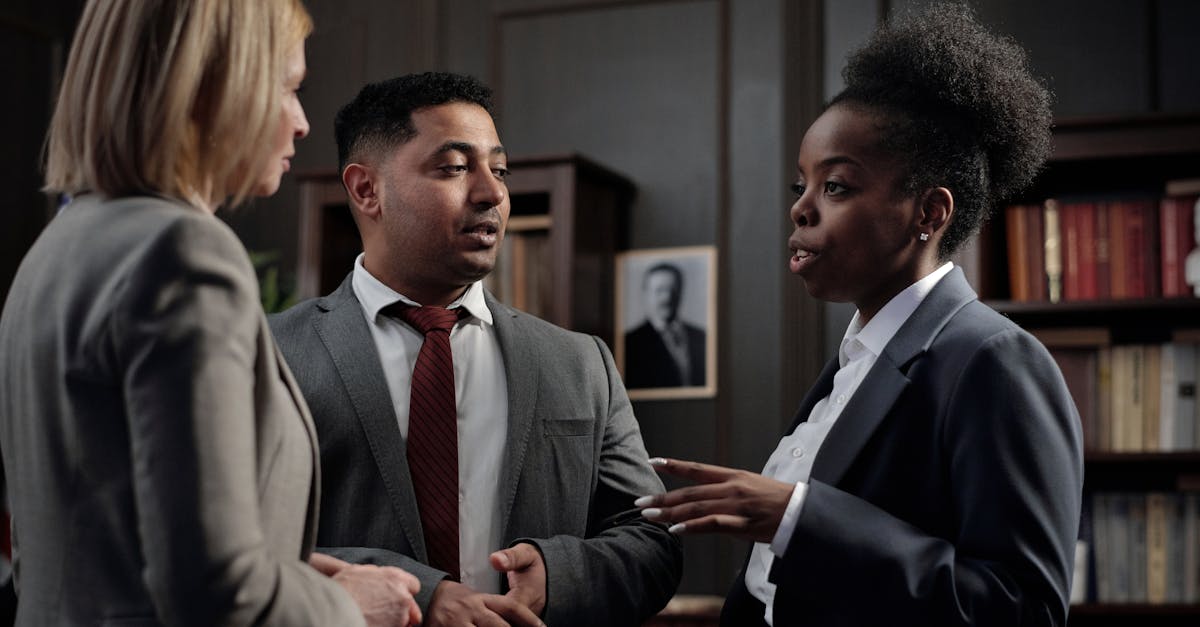
What to Expect During the Probate Process
After a loved one passes away, the distribution of their assets requires careful attention to legal guidelines. Executors or personal representatives are responsible for ensuring that the deceased's wishes, as outlined in their will, are upheld durin...
Read more →
How to Choose the Right Probate Solicitor
When selecting a probate solicitor, understanding their fees and costs is essential. Solicitors may offer varying pricing structures, such as hourly rates, fixed fees, or percentage-based charges. It is crucial to inquire about all potential costs up...
Read more →
How to Navigate Common Challenges During Probate
The probate process often involves intricate legal requirements that can be daunting for executors and beneficiaries. Familiarity with the applicable laws is essential, as these regulations can vary significantly between jurisdictions. Executors must...
Read more →
Roundup of Common Misconceptions About Probate
An executor plays a crucial role in managing a deceased person's estate. This individual is responsible for ensuring that the deceased’s wishes, as outlined in their will, are carried out properly. Generally, an executor should be over the age of 1...
Read more →
Review of the Best Probate Solicitors in London
Engaging a probate solicitor involves a range of costs that can vary significantly depending on the complexity of the case and the solicitor’s fee structure. Many solicitors offer fixed fees for straightforward probate applications, while others ma...
Read more →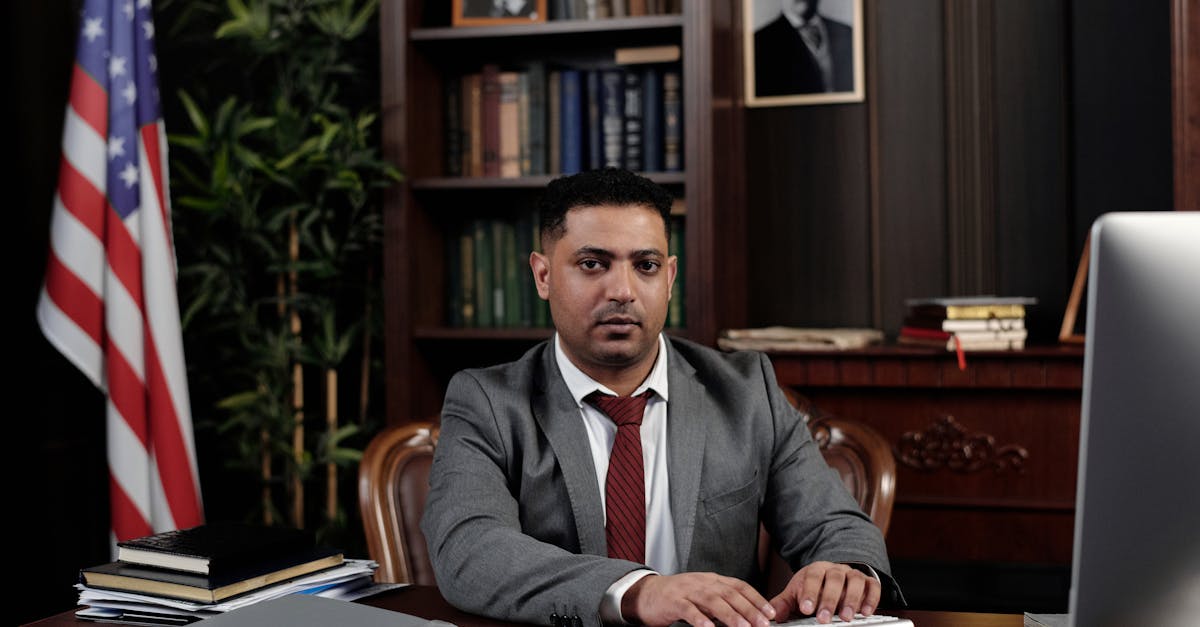
10 Essential Tips for a Smooth Probate Process
Clear and open communication is essential when managing the probate process. Regular updates serve to inform beneficiaries about the estate's progress, any developments regarding the will, and timeframes for expected distributions. Taking the initiat...
Read more →
Historical Overview of Probate Law in the UK
Executors and administrators hold vital roles in the administration of estates following an individual's death. The executor, appointed through a will, is responsible for carrying out the deceased's wishes, managing the estate's assets, settling debt...
Read more →
Why Probate Can Be a Complicated Process
When someone passes away, the estate may be subject to various taxes, significantly complicating the probate process. Inheritance tax often looms large, with different thresholds and rates depending on the estate's value. Executors must navigate thes...
Read more →
Why is it Important to Hire a Probate Solicitor
Navigating the complex landscape of probate can often lead to disputes among family members or beneficiaries. Engaging a probate solicitor ensures that the interests of the deceased are represented effectively. Their expertise facilitates clear commu...
Read more →
What to Know About Grant of Probate
Engaging in the process of obtaining a grant of probate can be fraught with various challenges. One common issue arises when potential beneficiaries contest the validity of the will. Disputes over the testator's intentions, testamentary capacity, or ...
Read more →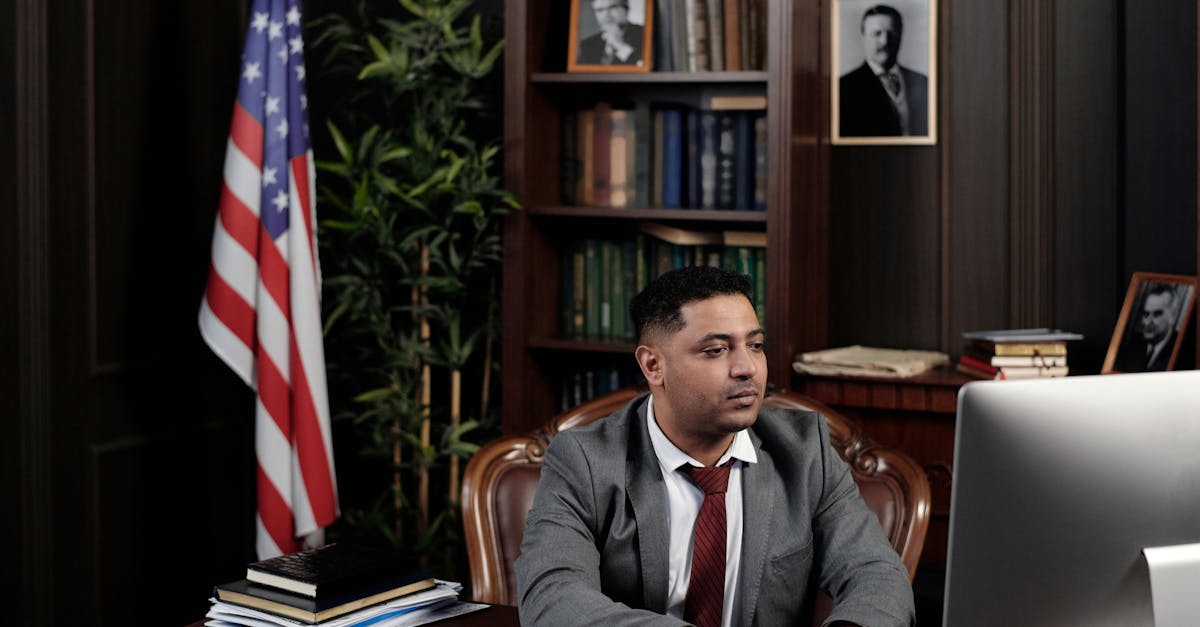
What to Expect During the Probate Process
The probate process involves a thorough assessment of the deceased's financial obligations. Debts and liabilities must be identified and settled before any distribution of assets to beneficiaries. This may include outstanding loans, credit card debts...
Read more →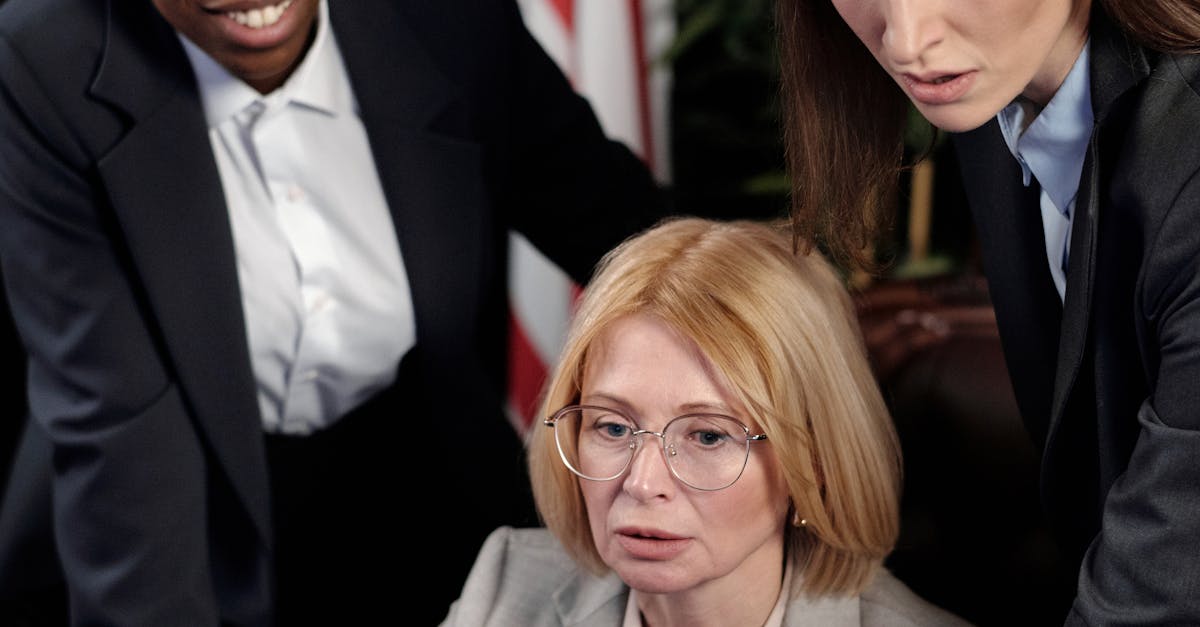
How to Choose the Right Probate Solicitor
When selecting a probate solicitor, understanding their fee structures is crucial. Different solicitors may charge in various ways, which can significantly impact overall costs. Common arrangements include fixed fees, hourly rates, or percentage fees...
Read more →
How to Navigate the Probate Process Successfully
The distribution of an estate can be a complex undertaking, necessitating an understanding of both legal requirements and the decedent's wishes as outlined in their will. Executors or administrators are responsible for ensuring that assets are divide...
Read more →
Roundup of Essential Resources for Understanding Probate
Executors play a pivotal role in the probate process, acting as the appointed representatives of the deceased's estate. Their primary responsibility is to ensure the estate is administered correctly and in accordance with the law. This includes gathe...
Read more →
Review of Top Probate Solicitors in the UK
Probate can often lead to a myriad of issues that complicate the process for executors and beneficiaries. One common challenge is the potential for disputes among family members. This can arise from various factors, such as differing interpretations ...
Read more →
7 Common Mistakes to Avoid in the Probate Process
The probate process often involves various tax obligations that can significantly impact the estate's value. Executors may underestimate the potential taxes due, particularly estate taxes which can arise depending on the overall value of the estate a...
Read more →
A Historical Perspective on the Probate Process in the UK
The evolution of succession laws in the UK has seen notable transformations influenced by social, economic, and political factors. Historically, primogeniture favoured the firstborn son, ensuring family estates remained intact and passed down through...
Read more →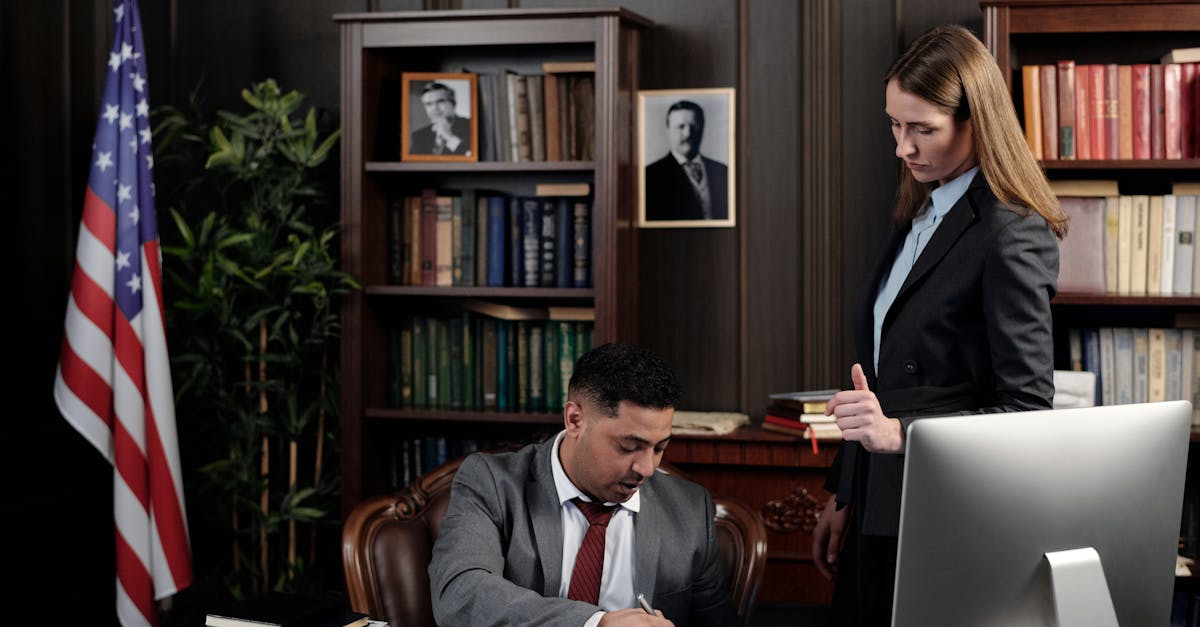
Why Do Probate Cases Encounter Challenges
Claims made by creditors can significantly complicate the probate process. When a person passes away, their debts do not simply vanish; instead, creditors have the right to pursue claims against the deceased's estate. This often involves a detailed r...
Read more →
Why is Legal Assistance Important in Probate Matters
An executor serves a critical role in the administration of a deceased person's estate. This includes locating and managing assets, settling debts, and ensuring the distribution of assets per the deceased's wishes as outlined in their will. Executors...
Read more →
What to Expect During the Probate Process
The distribution of an estate typically follows the instructions outlined in a will, assuming one exists. Executors or administrators play a crucial role in ensuring that assets are allocated appropriately. They must first confirm the validity of the...
Read more →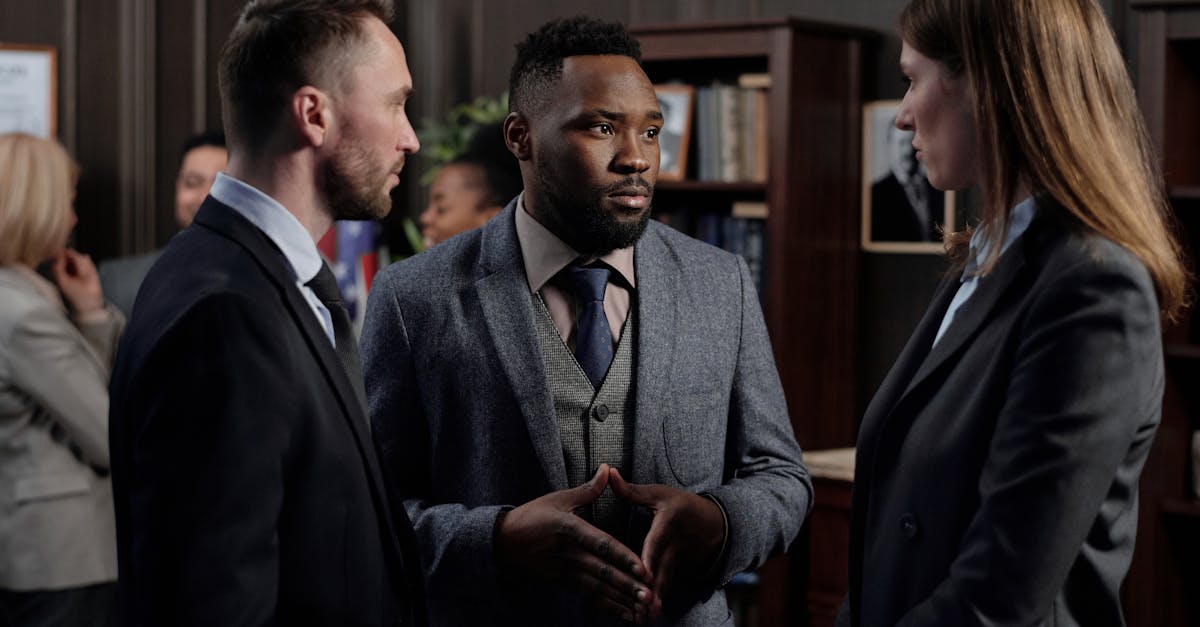
What is the Overview of the Probate Process
Upon the commencement of the probate process, one of the initial responsibilities of the executor is to address any outstanding debts and taxes of the deceased. This includes identifying all financial obligations, such as loans, credit card debts, an...
Read more →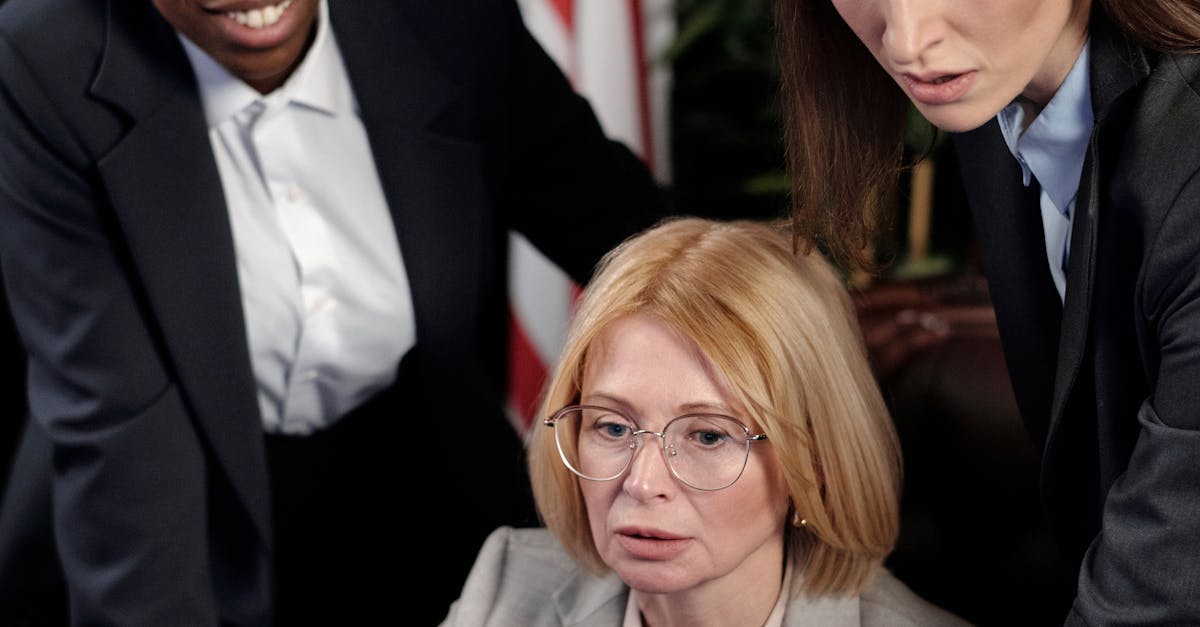
How to Prepare for a Grant of Probate Application
When managing an estate, it is crucial to identify all outstanding debts and liabilities that the deceased may have left behind. This includes loans, credit card debts, and any financial obligations that have accumulated. Understanding these debts is...
Read more →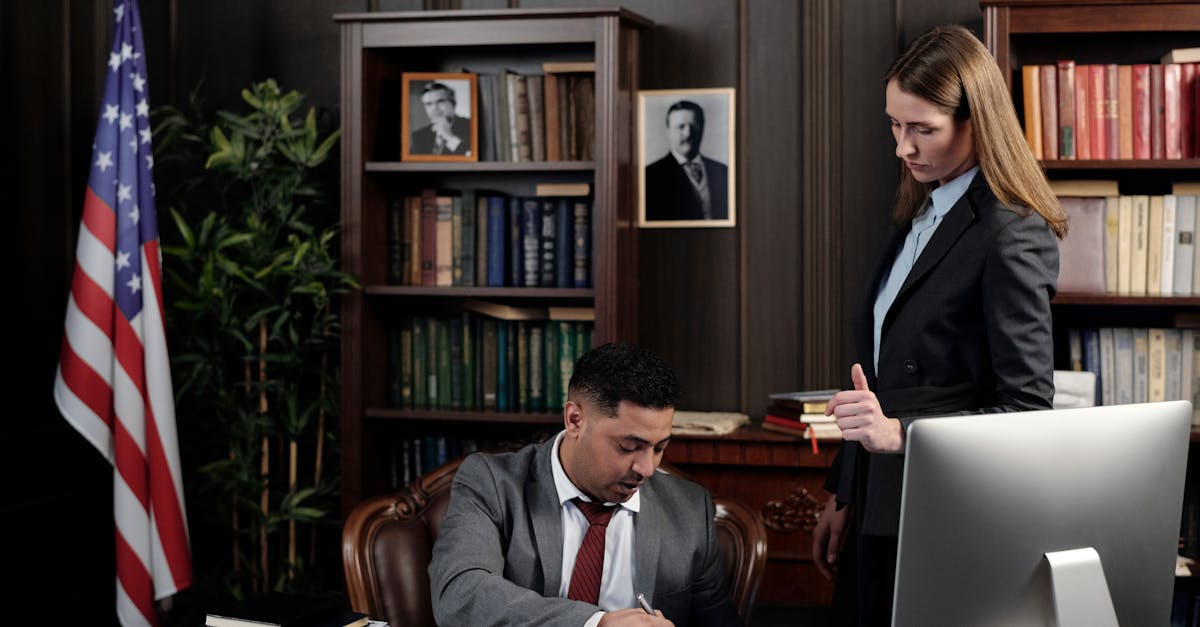
How to Navigate the Probate Process with a Solicitor
During the probate process, managing the deceased’s debts and liabilities is a crucial aspect that requires careful attention. The executor or personal representative has the responsibility to identify all outstanding debts, which may include loans...
Read more →